#when the casting has meta implications!!!!
Explore tagged Tumblr posts
Text
usually i am very pro Cast A Guy No One's Heard Of but riz ahmed as the street kid made good made villain is just. auuugh. auuuughhhhhhhh.
6 notes
·
View notes
Text
So do you guys actually think that Jason's entire story, relationship to the others, and philosophy amounts to him being a rebellious teen who wants his dad's attention? Like are you 100% serious? I thought you were joking about that but too many of you are saying it with your whole chest.
And what the fuck is this "Bruce antagonizing Jason is fanon!" Shit I've been seeing? You guys are aware that a parent can love their kid and still be a shit parent right? I know you guys don't want to fathom the thought that maybe your blorbo might also occasionally have to face responsibility for consistently endangering children but let's not start being delusional now.
Bruce does love his kids, that doesn't mean that he hasn't hurt them. And I'd also argue that for the most part he feels in the right for it, and he's said multiple times that he believes it's for their own good, so you can't even argue that he's sorry about it. It's okay for you guys to admit that your PERSONAL INTERPRETATION of the character wouldn't do that but don't sit here and pretend that it's not a facet of the source.
#you can argue meta until you're blue in the face#but I can't ignore the ingerent abuse of Batman and Robin because DC is always drawing attention to it#Stephanie and Jason directly died because of Robin#Stephanie wanted to impress Bruce to live up to his idea of a sidekick and prove her worth#Sheila only sold Jason out when she found out he was Robin#Damians life certainly got worse when he became Robin/moved with Bruce#if you bring up racist retcons I'll kill you btw#how are we supposed to read children dying and being tortured and traumatized constantly#and just ignore that these are children#I can ignore the reality of child sidekicks in campy light hearted early comics#but if DC wants to deal with serious topic they're going to have to deal with some serious implications too#Also that post that's going around about “Bruce loves Jason and it's Jason who's causing all the animosity” is such bullshit#what the fuck are you even talking about#and let's not act like Jason is the ONLY one at fault and Bruce is just a poor loving father#is Bruce spreading that utter bullshit about Jason's death and who he was not an act of violence?#was he not the one to cast the first stone by disgracing Jason's legacy and using a version of him that never existed as a cautionary tale#and I know some of you are going to argue that with most of the kids there's nothing Bruce could have done to stop them#and this is the one time in which I will ignore all the very real ways that he could have#but I still think that in universe the characters have a right to be angry about it#Jason always since his debut as red hood been a vehicle for calling out Bruce#he's so heavily steeped in meta narrative because his run is when they started dealing with the real BAD cases#The Cult Garzonas onscreen murders were getting more common#AND NO ONE CAN CONVINCE ME THAT BEING ROBIN DIDN'T MAKE JASON'S LIFE WORSE#THERE WAS NO REASON TO MAKE HIM ROBIN HE COULD HAVE BEEN VERY HAPPY AS JUST A NORMAL KID#But Bruce made having a place in his home synonymous with being Robin because the narrative dictated it had to be#what was homeless orphan Jason going to do? say no?#it was basically coercion and it doomed him and he has every right to blame the adult that put him in that position#dc#bruce wayne critical#bat family
77 notes
·
View notes
Text
For now, it's about 50/50 for whether or not these mysterious people that were included in the new trailer are members of the Gloriously Evolved. For fun, I'm going to break down why these people might be entirely unrelated to Viktor.
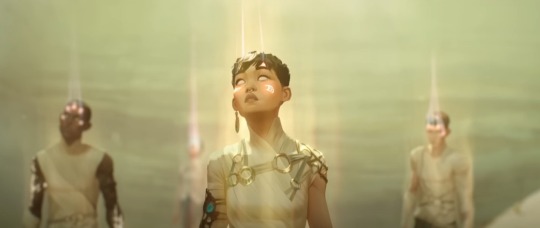
First, their bodies are clearly inlaid with gold, which does not replace their flesh. In the brief scene we get of these people the gold works as a conduit between their melodies and the magic around them. Meanwhile hexcore has entirely transformed Viktor's hand and leg into metal.
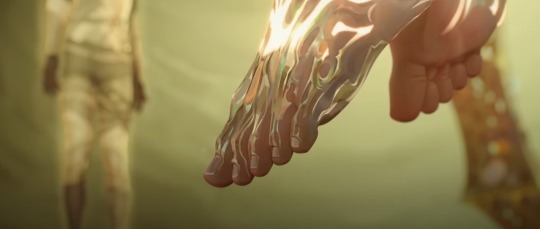
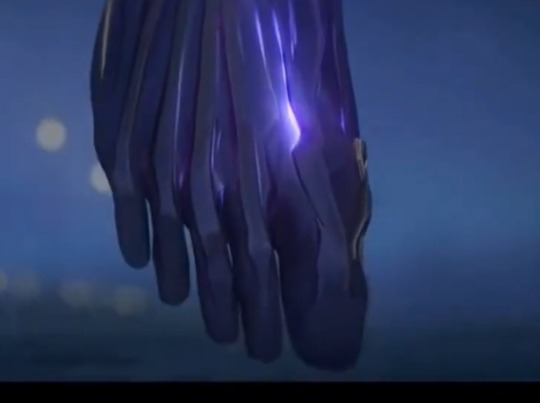

We know that Viktor's entire hand and leg have turned completely into metal because not only do his limbs make metal clinking noises and conduct electricity, but the animators on Bridging the Rift confirm it.
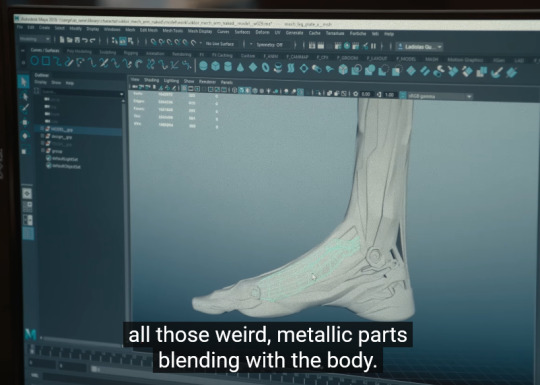
I've also seen some mention that the markings on the faces of these unknown characters represent Viktor's touch when he "healed" them. Upon closer inspection each character does have a five markings on their face, but they're detailed runes rather than Viktor's hand print, implying this may be related to a more intricate ritual rather than Viktor simply laying his hand on them and transforming them with the hexcore.

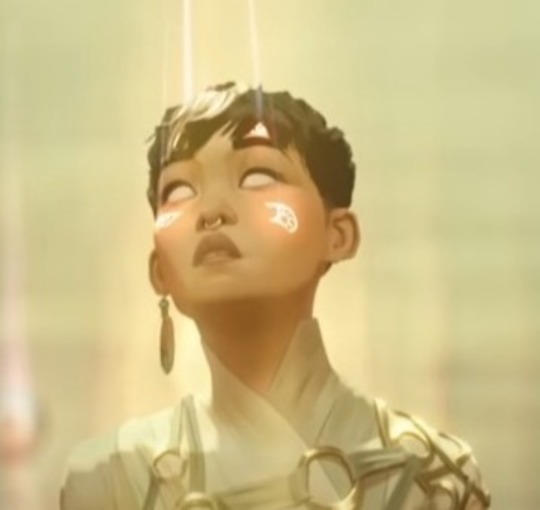
Really, these people have magic more similar to Mel Medarda. Mel is the one who appears to wear magical gold embedded in her skin to serve as protection magic. What Mel is doing with magic is likely far more simple compared to these people, but it's in the same vein. And that may be the entire point.

Viktor and his cult are the outliers. Whatever Viktor has done in season 1, and what he will continue to do in season 2 is a divergence (possibly perversion) of how magic should work/be treated in the rest of Runeterra, which makes sense! Viktor literally said he doesn't know what he's doing, he just keeps going.
What's likely happening in this scene is that some sect of mages, maybe they're acolytes of the mage that saved Jayce have become aware of the magical shenanigans in PnZ... and it's bad.
Then again, I haven't seen the leaks. Maybe I'm wrong, but I think this is all worth pointing out. (This is not a solicitation to tell what happens in the leaks).
#arcane#arcane meta#viktor arcane#mel medarda#i feel like people keep forgetting that viktor has the potential to be the most dangerous character in the cast#what Viktor's doing is is not normal magic it's an abberation#the stronger he gets the more the wider world becomes aware of what he's doing#for the first time i see that viktor has no toe nails anymore#ridiculous things i learn for my meta#it is pretty interesting to see that the mage from Jayce's memory is watching#the mage who us probably Ryze or something#is pnz the problem child of runeterra... it's more likely than you think#this could really create more interesting implications here#the ban on magic in pnz has essentially put everyone tbere at square 1 when it comes to figuring things out meanwhile#in other regions like demacia they may persecute mages but technically they didn’t ban all of it#what's considered magic is arbitrarily defined as an excuse to persecute others#so the governing body is still AWARE of how magic generally works and are more prepared for disaster (sort of)#but pnz really is just playing in the dark and calling it science
64 notes
·
View notes
Text
Saving Lu Guang!!
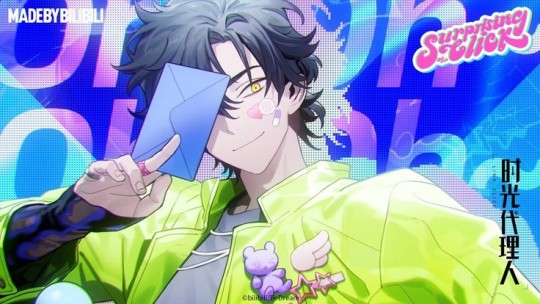
For obvious reasons, we're all assuming Cheng Xiaoshi is the one who needs to be saved. The final plot twist of season 2 is the main reason:
I'm sorry Cheng Xiaoshi I’ve always been telling you to not change the past but I couldn’t follow my own words. Even if I know death is an unchangeable point, I still want to use the last chance to go back to the beginning, and save you.
But. Lu Guang is the most unreliable character you'd find out there. His version of the story is sometimes inconsistent.

Many details don't add up, might it be the fact he doesn't have his phone with him at a moment as important as closing a trap on Liu Min, or that the scene in the hospital bathroom is different when Cheng Xiaoshi dives as Lu Guang, or the simple obvious impression that it's future Cheng Xiaoshi who's giving him the partner talk on the basketball court--
Well, there might be someone in Lu Guang's corner diving and changing things without him being aware of it. This person being Cheng Xiaoshi himself is most likely.
Now, why would Cheng Xiaoshi dive into the past after all this time when he decided against it after Lu Guang's death? Saving Lu Guang or Qiao Ling is the most realistic and in character reason but there is more to this particular theory today.
Remember, whatever we think, there is more to the story. As omniscient as Lu Guang seems to us at the moment, he, himself, doesn't have all the information.
Past or Future, it has been clear until now that official content is hiding many secrets yet to be uncovered. Dive with me into this madness once more~
This meta is largely inspired by this thread
>> Lu Guang's secret
Let's start with something as basic as characters concept arts. Those always strikes me as out of charater, because Lu Guang and Cheng Xiaoshi's personality seems somehow switched: on the character sheets, Cheng Xiaoshi looks pissed and Lu Guang smiles (like a creep).

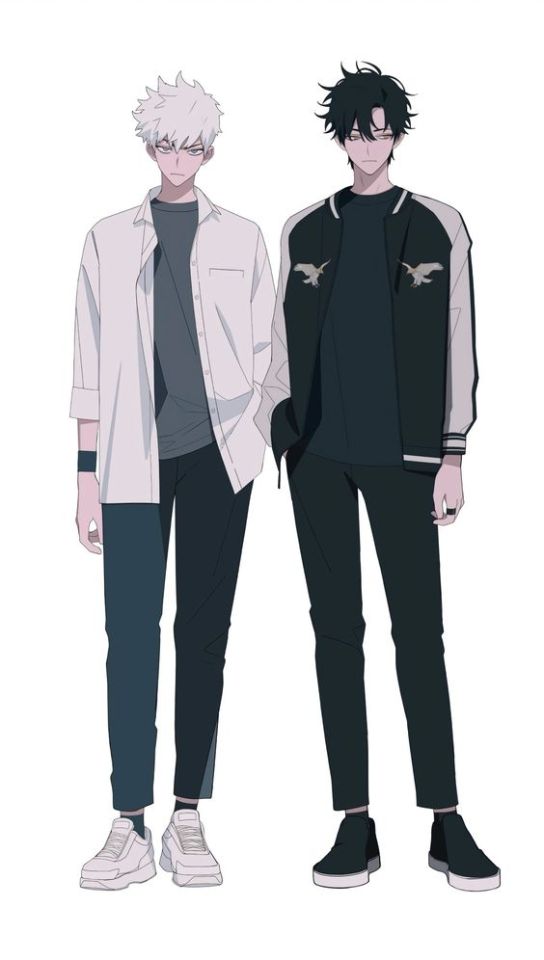
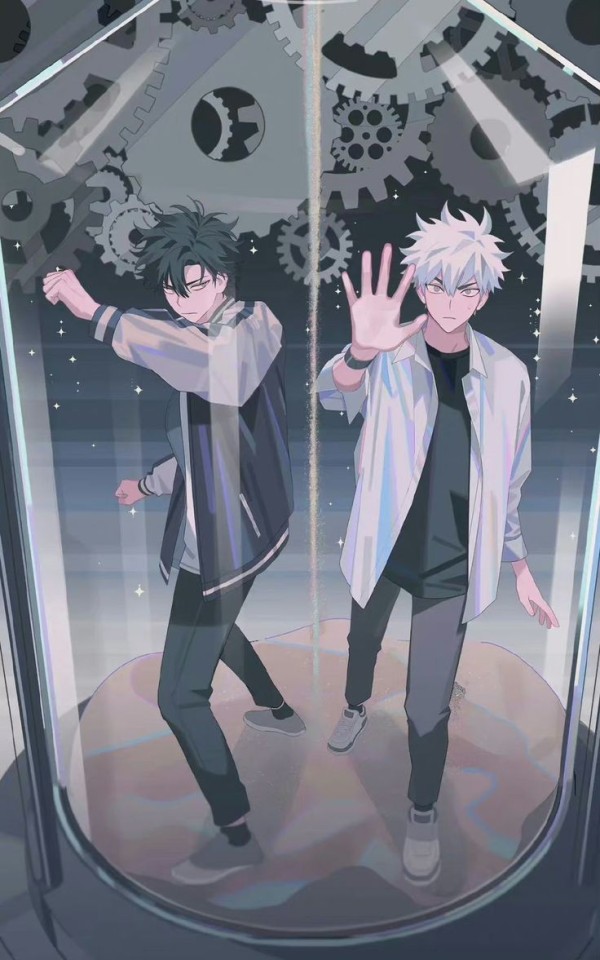
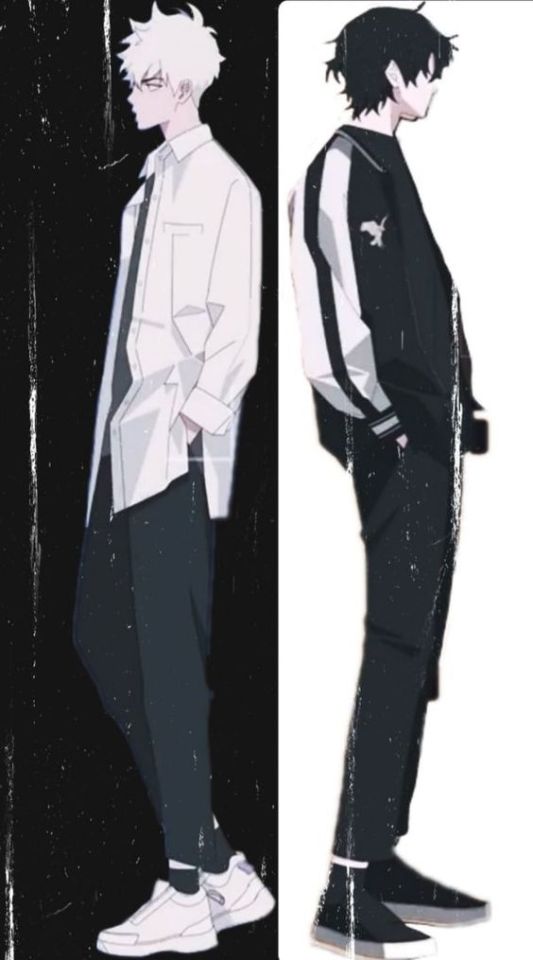
Two things are worth noticing in this first pack of pictures:
Lu Guang's character sheet looks like a frame if the film roll has been exposed to light while loading in the camera. It is damaged. His smile in the background is also absolutely not his. In the light of Yingdu Chapter's teaser, it could mean Lu Guang is possessed by either Li Tianchen or Vein. Not only that but the surexposition makes it impossible to know the exact color of his eyes. Could be yellow, red, blue, gray.
They are both trapped in the bottom of a hourglass. Cheng Xiashi looks at Lu Guang in a frustrated/angry manner, and this face is a lot like the one in the background of his character sheet. It could implied that Lu Guang got them into some kind of bad situation.
Promotional posters presenting season 2's characters have Li Tianchen is Qiao Ling's shadow while Liu Xiao is Qian Jing's. Lu Guang is Cheng Xiaoshi's. Lu Guang lies/manipulates Cheng Xiaoshi for his own good since the start, he hides secrets after all. He is as much a puppeteer as Liu Xiao. He is very knowlegdable but we have no idea to what extent. We can only assume that whatever he is doing, he's doing it for Cheng Xiaoshi's sake.
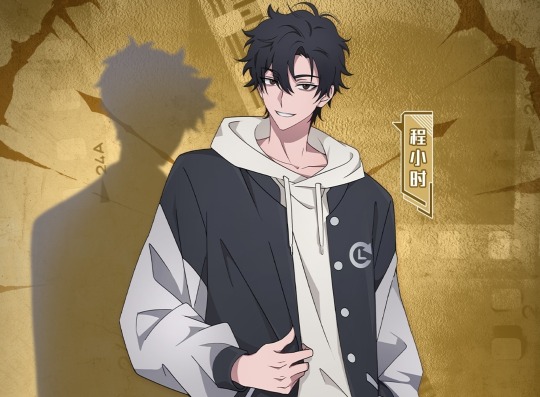
These details and the implications don't put Lu guang under a good light. Lu Guang always was a morally gray character, however his logic paired with Cheng Xiaoshi's compassion make them the duo we are rooting for.
A popular theory is that Lu Guang betrayed a Time-Something Organization to save Cheng Xiaoshi and is now being punished. Another one is that he made a deal with Vein to grant his wish. In any case, he might have ties with Vein and Liu Xiao, as a whole or separatly, we can only speculate so far.
In my meta on the Promotional Poster for the AR GAME, and the Light and Color theory, I mentioned that "Burning Palace" hints on a Fourth character being part of this new group, and argued that the missing character is already part of the cast: Lu Guang.
Futhermore, whatever happened, he can only be at fault: Lu Guang is supposely the one who introduced Cheng Xiaoshi to his powers. We still don't know the origins behind those, and I won't start the disucussion in this meta, but we know that at some point, in this timeline or another, Cheng Xiaoshi tried to convince Lu Guang to use their power to earn money and pay their debts. Link Click Live Action is not canon to the donghua, but in this adaptation, Lu Guang is the one coming to Cheng Xiaoshi and teaching him the useful way to use his strange energy.
To resume, Lu Guang isn't only keeping secrets from Cheng Xiaoshi. As an audience, we know close to nothing about him, even less than his roommate! Except for the fact he's probably been diving back in time to change the past. Therefore, he cannot be trusted regarding his abilities, his past, or even his motivations. Lu Guang knowing everything or more than others because he lived through several repeats is a false fact. When something unexpected happen, he totally freaks out and he is a control freak. It's okay, we love him as he is. But! He is the definition of unreliable as far as narrators go.
In the past or in the future, Cheng Xiaoshi has to find out the truth at some point. His reaction shouldn't be important for this meta though. Actually, I think the official artworks of him being pissed shouldn't be taken quite literally. The hints I talked about above don't mean anything about HIM or his feelings but it says everything about Lu Guang's actions and the implications of those: he is doing something he knows is wrong and his ultimate goal is exactly the same as some antagonist. Being kept in the dark, lied to or manipulated, Cheng Xiaoshi wouldn't focus on any of it.
Why? If Lu Guang actually rewrote reality and put himself in a doomed situation for him, Cheng Xiaoshi would absolutely try to cancel this accomplishment. That's the only important information we need for this meta.
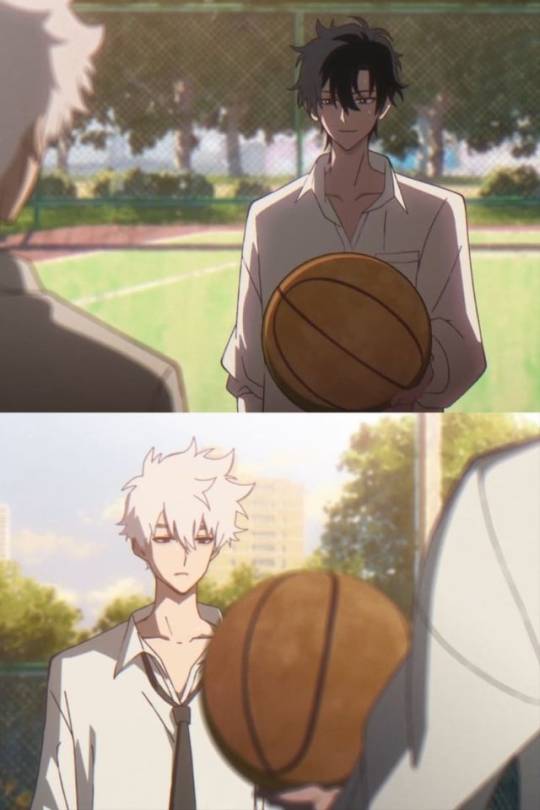
Cheng Xiaoshi went back in time as someone they knew before so we can assume he would do it again if needed. Imagine our guy coming back as Qiao Ling, as his own wingman to force Lu Guang back into his life? If the talk on the basketball court didn't work, I'm pretty sure getting Lu Guang to do physical work in the studio and bully him to admit he likes Cheng Xiaoshi would do the trick. That's a start anyway.
With these few starting points, we can go deeper now:
>> Through the Looking Glass
There's a myriad of instances where Lu Guang and Cheng Xiaoshi are kept apart from each other by glass or shown as each other's shadow or reflection. And I've been mentioning it for a while now but finally, after almost a year, I think I've finally cracked this case!
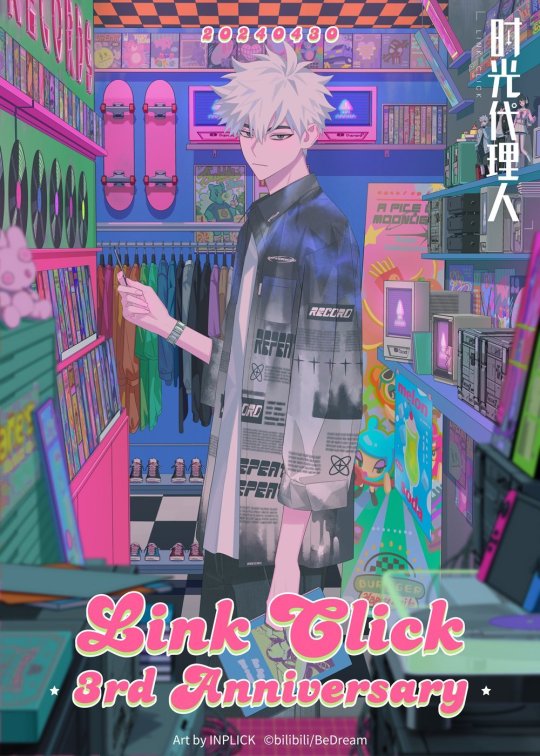
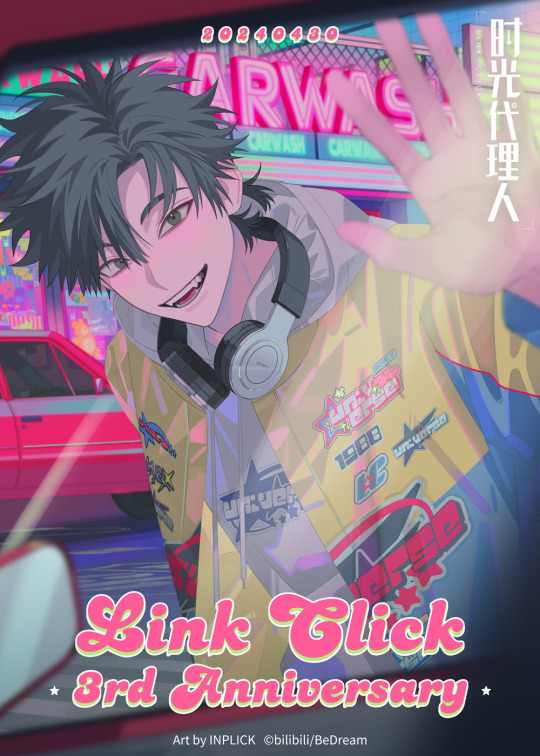
Starting with Surprising Click Posters, there are 5 visible TV screens with a message of ERROR on Lu Guang's. No matter the meaning, I think it is important to note that Lu Guang is just as much a spectator as we are. The plot happens as it's supposed to happen: no matter what, they'll end up at the same point. For some reasons, I always believed that Cheng Xiaoshi was trapped behind the glass, in the TV, as a playable character, if you may. That's part of how their abilities work together, isn't it? Their deal is Cheng Xiaoshi dives but Lu Guang drives. Well, I'm not so sure anymore. The Picture of the carwash is random but interesting. Cheng Xiaoshi is outside and is knocking at the window.
Who's the one trapped behind glass after all? What if Lu Guang himself is trapped in a TV and Cheng Xiaoshi is trying to get him out?
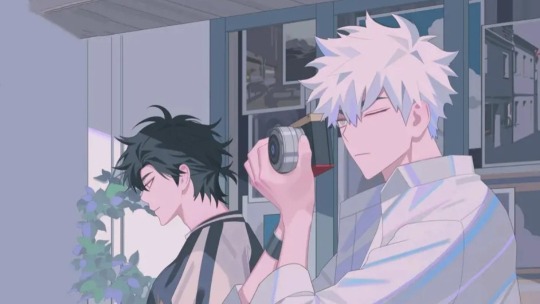
The first one seen with a camera in INPLICK's art isn't Cheng Xiaoshi but Lu Guang. The story is told from his perspective. But this is Link Click we're talking about so this means basically nothing. Cheng Xiaoshi dives into pictures, he is the one with real control. Lu Guang, all-knowing that he is, is introduced as a passenger, an observer. Even after the big reveal regarding his diving abilities, his strict rules and his attempts to protect the main timeline bring him to failure. This cycle is only set to start again over and over, making it an actual time loop.
In "OVERTHINK", Cheng Xiaoshi is the one using the camera. He looks away from Lu Guang (in deception or sadness I'd say). Once he takes the picture, there is no one there: it could mean Cheng Xiaoshi is using one of Lu Guang's pictures to dive. Yes, Lu Guang's picture: after all, it is Lu Guang's camera that he is using.
Take a look at this meta: Rolleiflex
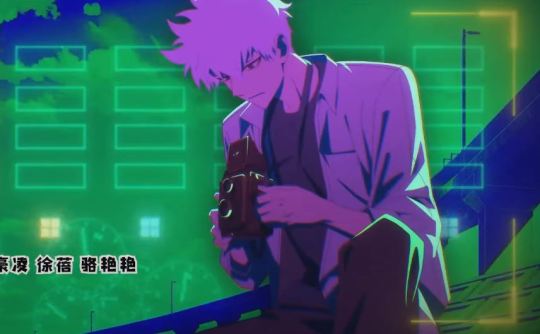
This aside, Lu Guang is the reflection/shadow, not Cheng Xiaoshi, and thus on several instances. A shadow or a reflection can't do shit. Lu Guang has no control, even if he's being sneaky and acts in the dark. Lu Guang isn't the one calling the shots.
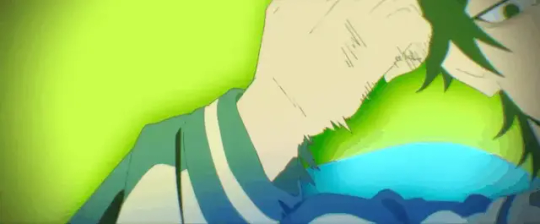
Cheng Xiaoshi is knocking through the glass to reach Lu Guang who's always watching us, the audience. His motivation, objectives, values, worth depends on Cheng Xiaoshi's survival but he doesn't see him. Perhaps his obsession is blinding him to the point he sort of dehumanized his friend. Indeed, the distance between them is as wide as the one between you and them. Coincidally, when he does look at us, Cheng Xiaoshi is looking at him.
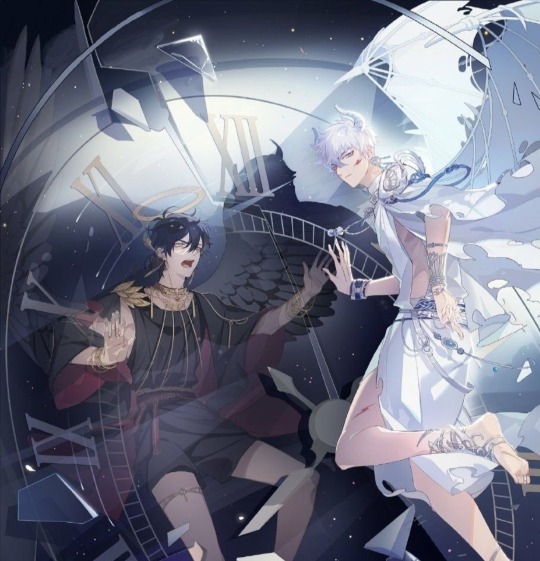
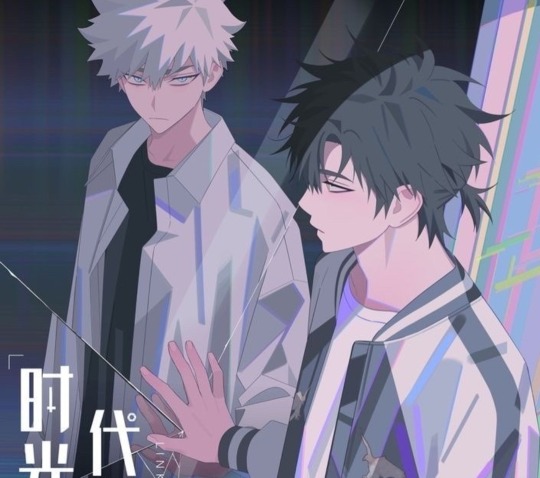
I'll probably write a structured and complete meta about it at some point but for now I'll just put this idea in your head: who else looks at Lu Guang's reflection and portrait, always?
Liu Xiao.
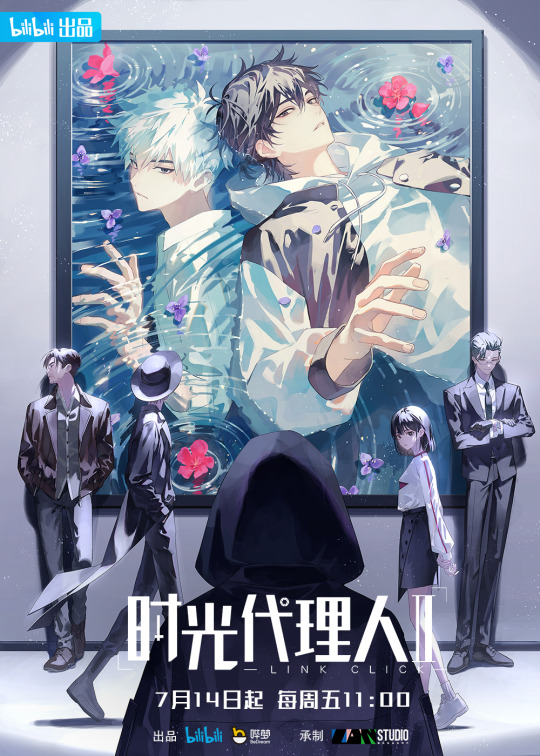
lover_astrid on X often follows Liu Xiaos's trail, they point out interesting things those, specifically: x x
Let's start with his monolgue at the end of season 2:
"It seems that one has only one destined path. But in reality, it is made up of countless parallel lines. It can be driven by one's personality. And can also change with the influence of others. Sometimes we wanna change it. But we can't. I wanna bring more parallel lines together to turn all uncertainties into certainties."
If we cannot change one's path (aka death is an unchangeable node), what is the point in turning incertainties into certainties? For one thing, I think he means to flatten a curve: make it one unique path for one specific node, like a True Timeline of sorts. Then, what does it imply? My guess is to remove either Cheng Xiaoshi or Lu Guang entirely. A theory to take with a grain of salt.
At this point, if we talk about his identity as today, before Yingdu Chapter, he could very much be an alteration of either Lu Guang or Cheng Xiaoshi trying to right a wrong. In the teaser of Surprising Click, he is standing with a picture in front of the familiar couch, many TV screens surrounding him. He's oviously a watcher. He has more knowledge than Lu Guang, and he's obsessed with him apparently, which implies that he knows about his abilities, maybe personally.
Secondly, the text Liu Xiao is reading is part of Shakespeare’s sonnets (39). I won't go too deep into the meaning of it but feel free to read this analysis. It does speaks of lovers separation, but as something that need or should happen.

Lastly, the black feather is Lu Guang's. Liu Xiao can reach Lu Guang but Cheng Xiaoshi cannot. Liu Xiao is always staring at Lu Guang's image and he has his feather as a memory, but Cheng Xiaoshi is separated from his friend by glass.
In BREAK! Cheng Xiaoshi is the one looking at us. It's like a nudge: hey, actually, I am the one telling you the story, pay attention please. When he raps in songs, he always starts by interrupting loudly to get your attention as well. "Now I'm talking. And Lu Guang will take over."
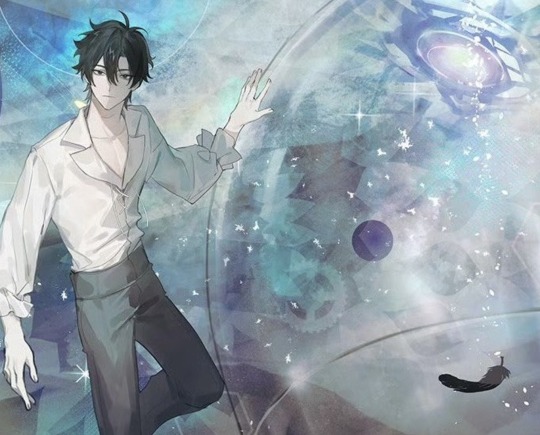
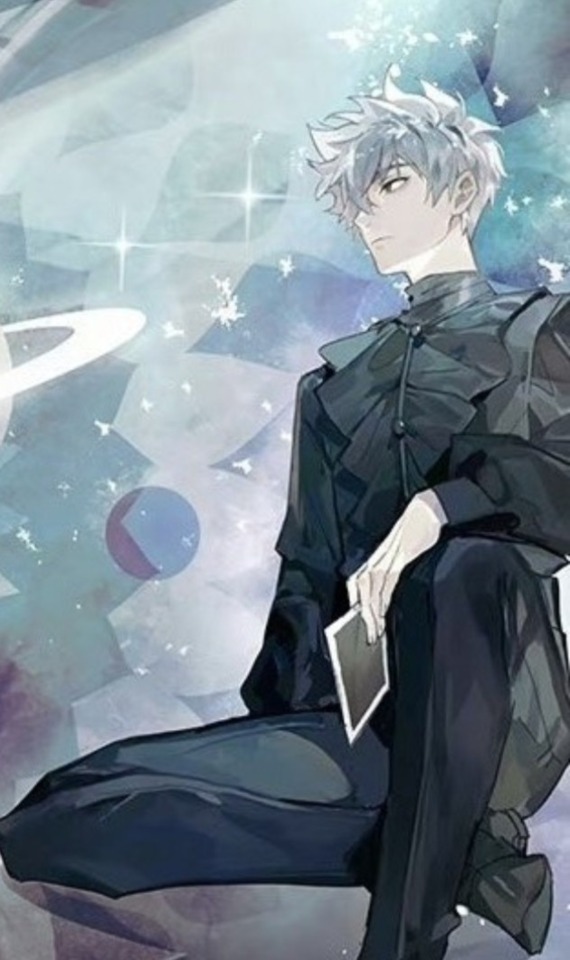
Cheng Xiaoshi's hand is on a bubble. I always thought it was a mere planet but it's actually a see-through marble. I think it is possible that Lu Guang is inside. The title itself, "BREAK!" is a giveaway of what it will take to free Lu Guang from this. But hold that thought for now.
The hourglass is a recurring motif in Link Click. It is Lu Guang's symbol. It might means that Lu Guang is in a timeloop. Perhaps he isn't only going through repeats but he is trapped in ONE endless loop. Perhaps he's already saved Cheng Xiaoshi but forgot; cut from the reality he belongs to.
The hourglass is not only an object we come across in PVs. The Birthday artwork for Lu Guang showed him in one, with forget-me-not flowers replacing sand. The Bday arts are actually very interesting because both Cheng Xiaoshi's and Lu Guang's heavily hint on Tarot Cards: the Hanged Man and the Fool. I'm working on an ass-long meta regarding the Tarot Imagery in Link Click so I won't go into too many details here.
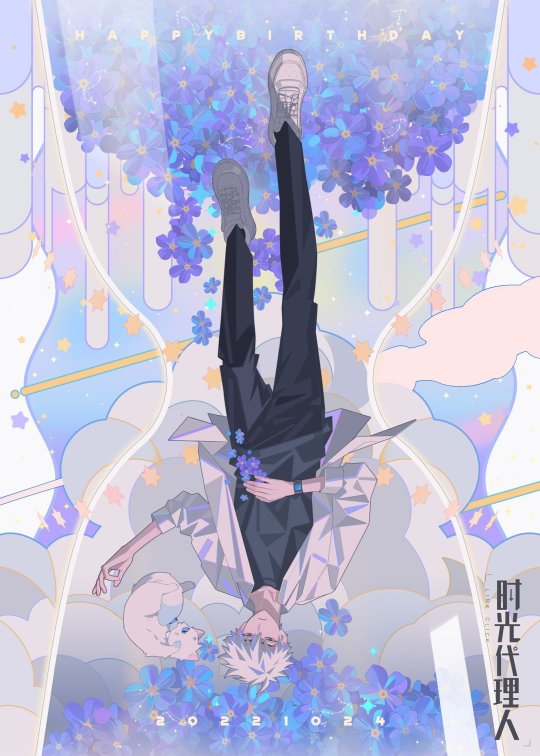
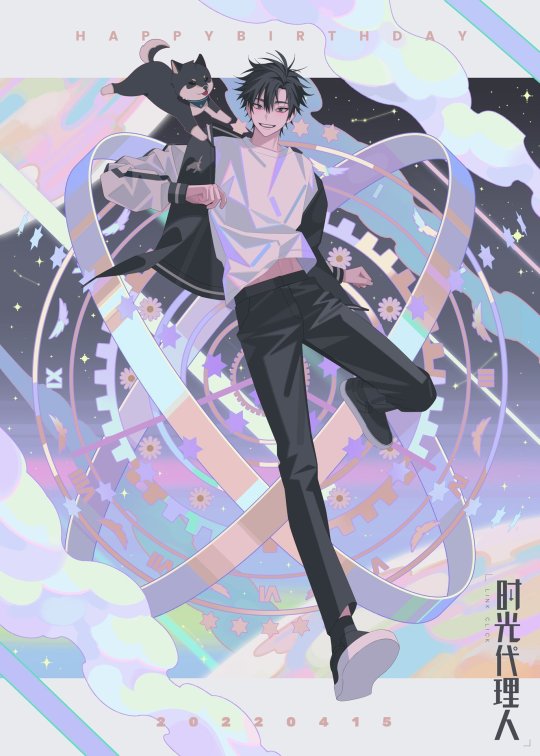
We have the Hanged Man: he might be intuitive but he is lost, feeling trapped, is self-limited, in need for release only possible by letting go. There is a part of this arcane that tells us we know the prefered outcome but it might blind us, bring us to a prophecy we're actively trying to keep from realization. He sacrifices himself but for what?
In myths, might it be Judas hanging from the tree because of guilt, or Odin when he sacrificed himself to gain the knowledge of the runes, we're talking about an obsessive person who acts according to their own beliefs, with strong moral values. The Hanged Man speaks of selflessness... giving and not expecting in return, making sacrifices for what must be done. The truth is the Hanged Man picked his hill and will die on it. This card comes before Death, representing the peace that comes from accepting what is out of our control or no longer resisting our fate. This is all about letting our own hubris prevent us from taking a different approach.
The cat here is covering one of his eyes, which could be a parallel to Odin once more. I mentioned at the end of this meta that Lu Guang's sight has been stolen. So, it might be a choice that he is in the situation he is in but perhaps he shouldn't have made decisions on wrong beliefs.
I'll let you know that the reversed Hanged Man suggests that the seemingly noble deed of offering yourself as the sacrificial lamb is, at least for the time being, a useless gesture.
Now, the Fool. As a tarot card, I find this one very interesting and mysterious. Arthur Edward Waite gives the Fool the number 0, but in his book he discusses the Fool between Judgment (XX), and The World (XXI). He is suspended between realities. The Fool is usually considered part of the Major Arcana in tarot reasing but this is not true in tarot card games; the Fool's role in most games is independent of both the plain suit cards and the trump cards, it does not belong to either category. The Fool proceeds without calculation, spontaneously, without hesitation or resistance. Without a blueprint, he is freed up from rules, restrictions and systems.
Portrayed as an empty headed simpleton unaware of the forces that move him. In the Waite-Rider deck, you'll see him immortalized right before his fall of a cliff, walking with his loyal dog. He's impulse and careless. But tradition tells us that he has a secret that protects him: the magic of synchronicity. Now that seems counter-productive in my meta but basically synchronicity is what happens when seemingly unrelated events coincide in improbable ways that have some sort of significance for you. Carl Jung believed synchronicities were evidence of a unifying consciousness at play in the universe, creating physical manifestations of what's happening in our psyche.
Together, the Fool and the Hanged Man encourage to take a step into the unknown and to trust that everything will work out in the end. This combinaison warns of a time when sacrifice and surrender is necessary for growth and transformation.
The Hanged Man understands that his position is a sacrifice that he needs to make in order to progress forward. But only by letting go of old patterns or beliefs that are holding him back can he embrace a new path leading to a good resolution.
The gears and hourglass present in these artworks are kind of self-explanatory. A cog only works as part of a machine, and the machine can only work if everything in there is where it should be and fullfills its role. One action or series of actions repeated in loop. The hourglass measures time but it comes to a stop at some point: has to be turned around so the sand it contains keep flowing. It has a start and a stop.
Finally, the character's flowers aren't only pretty, they're also meaningful. Both are related to Love and Death. Forget-Me-Not are popular enough: related to the wish to be remembered even after our passing, translated into devotion and enduring love. Bellies speaks of everlasting love even beyond death, symbol of cheerfulness and loyalty.
>> Time is like Music
"VORTEX" is a palindrome, meaning it is the same when played forward or backward. The sequence itself show this: it starts with a reverse and then, once Cheng Xiaoshi touches Lu Guang's hand, he falls down. It is a hourglass in shape and sounds. Also, it would be very clever if the story of Link Click as we've seen it had the same construction in its narrative: starting with a reverse and slowly unfolding the accurate chain of events.
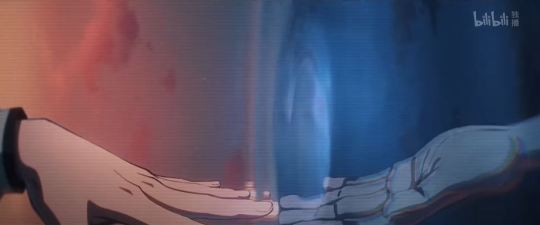
This hourglass, we can find it in the "BREAK!" PV, but also in "XETROverthink". Cheng Xiaoshi literally dives into it to try and reach an unconscious Lu Guang, enlightening the idea that our favorite unreliable narrator has blind spots. We don't see Cheng Xiaoshi catching his friend because the scene cuts to the hourglass.
So, what if Link Click lied to us since the beginning? What if one other version of Cheng Xiaoshi is actually the main character and knows more than Lu Guang himself?

In "The Tides", when walking in front of the painting of a man with fabricated wings (and we know this story is one of a widower), Cheng Xiaoshi looks at it while Lu Guang looks the opposite way. There are different ways to interpret this (because this is animation so we can't be 100% sure). Once again, he could be looking at the audience or merely glancing at his lost friend in longing. Still, it offers two possible points of view:
It could be because he empathizes with the widower's story: he is living it. He knows all of it already so he doesn't need to look at the doomed romance on the wall or actually investigate the mansion.
Or perhaps it is the opposite: Cheng Xiaoshi is looking at himself. This is merely a reflection to him. And Lu Guang thinks he knows the role he is playing in the story but, really, he's clueless.
Surprisingly, you might have missed an obvious hint that dropped this summer, or simply overlooked: H A N D S.

The wings on the painting might look like Lu Guang's demonic ones but I do not believe it is a coincidence that Lu Guang usually sits by Cheng Xiaoshi's right when they clap. The first time we see them do it, and this exact frame has been used in PV and Overthink, Lu Guang claps down. Also, the "BREAK!" poster shows Cheng Xiaoshi as an angel and they are standing in the exact same position as the figures in the mansion. Once again, the hourglass floats, ominous, between their palms.
Note that even when Lu Guang receives Cheng Xiaoshi's hand, he is on the right side.
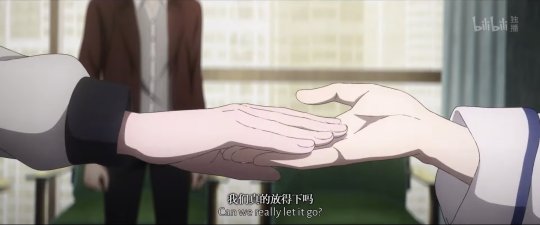
Next: None of us skipped "Dive Back in Time" so we know it by heart. Still, I find hints in this intro on a daily basis. If you pay attention, you'll not only notice that Cheng Xiaoshi probably dives in the first three seconds, but he's looking down through glass, at Lu Guang. Lu Guang, who stands at the top of a building here, is still not above Cheng Xiaoshi. Two things:

In the chronological order, the story told is this: First, Cheng Xiaoshi dives into the picture and then we see Lu Guang changing the timeline to save Cheng Xiaoshi. This is basically Inception.
The glass could be from the frame but it could be very much so from the usually hourglass, symbol of Lu Guang's obsession.
Another interesting detail is this shot:

Thanks to the watch, we know those are Lu Guang's hands but it is a pose we only see Cheng Xiaoshi takes. Because this is the "sponsors screen", this became Cheng Xiaoshi's signature move to me. We see the story through Lu Guang's perspective, but it's really Cheng Xiaoshi that we should focus on, here.
This particular sequence also offers a reverse: a fall, the "frame" sign with hands, one of the hand making a sign to "look up"/"go back up", then we are pulled up. It is the same narrative as "VORTEX" but this time we find ourselves on the other end, the correct order.
"Break!" lyrics once again seem to fit to Lu Guang more (and I think that's the point, "You're not just a tool" can only be addressed to CXS because that's how Lu Guang and Qiao Ling usually call him). Although the word break is used only once in the song ("make or break a leg"), the action of BREAKing is Cheng Xiaoshi's. Plus, the broken glass is the hourglass.

Speaking of broken glass and reflection, this shot of Lu Guang and Cheng Xiaoshi in reverse in "VORTEX"- I reversed it according to the background (falling down). Once more, Cheng Xiaoshi is the main body, Lu Guang is not actually there.

In a way, this theory only gives more sense to "XETROVerthink": Lu Guang appears in the hourglass but it's Cheng Xiaoshi who swims to him in order to save him, not the other way around. The rest of this PV is Cheng Xiaoshi's POV too.

Aside from the visual theme that shows basically everything we need to know about Link Click's plot, you have obviously the lyrics. As much as "VORTEX" and both ENDs, they could be read as Lu Guang or Cheng Xiaoshi's pov. But like I said at the beginning of this meta, some lines aren't working for Lu Guang at all.
There has been a hint of Lu Guang trying to stay away, in Lu Guang's flash back, but failing. We don't know if these memories belong to the timeline we're currently watching or not, but they egg us on the very real possibility that Lu Guang might chose to stay away from Cheng Xiaoshi in order to save his life. After all, their powers are complimentary and work together. Their side hustle depends on this. Arguably, and this is an realistic conclusion to draw: this job is what kills Cheng Xiaoshi. It's only natural to suppose he wouldn't die if Lu Guang wasn't in his life.
Your eyes, there ain't nowhere left to hide behind Something secretive hidden inside your mind If it ain't for your misguided taste I'd turn out so ordinary Fabulously un-addictively bore out my own brain Well, don't you feel sorry I'll love where I'm going now
Blue: Diving into Lu Guang's past/picture, could uncovered all secrets, Cheng Xiaoshi could understand him and, from this perspective, there is no possibility to hide anything.
Pink: Cheng Xiaoshi wants to correct Lu Guang's correction, he doesn't want to live an ordinary and boring life Lu Guang isn't a part of. He likes their side hustle as well, I think, because, as I said in the past regarding LCLA, he wants to help people, it's part of his core.
Possibly, our favorite unreliable narrator actually went through it with this in the end. This hopefully won't stick, not if Cheng Xiaoshi has something to say about that.
Cheng Xiaoshi wouldn't really want things any other way, and that's why this theory of him trying to get Lu Guang back into his storyline seems so plausible to me. Good or bad memories, he just want his partner back.
Because, after all, doesn't it sound like a line someone who remembers a friend who doesn't exist would say?
Chase you to the end of the world just to say your name once more.
I always thought it was a strange way to put it. Most of the time, songs and movies say the opposite "I want to hear you call my name one last time." You know the kind. But here, he wants to say it.
Food for thought. 👀
#Meta#the daily life of alice's hyperfixation#lu guang#cheng xiaoshi#link click#shiguang dailiren#时光代理人
66 notes
·
View notes
Text
7x07 Costume Meta
Well!! Where does one even start with this episode!!!
We start with Hen - thats where! Well actually we start by saying that no Bobby or Athena in this meta - as they were only seen in uniform!
I also want to say - starting with this one, I'm going to have to pull back from the very full on costume meta's I've been putting out each week - work has got incredibly busy (I'm about to undertake a massive multi £million project) and I just don't have the capacity - mentally and physically or the time, to write meta for every single one of our main (and the regulars/guest) cast. These metas take a huge amount of effort and energy and while I love writing them, I need to have the time to pursue other things alongside them, (which I currently don't) and give myself time to rest - I don't want my AuDHD to spiral me into burnout.
So while I'm still going to be putting out a costume meta each week, I cannot guarantee which or how many characters and costumes I talk about - I may do all the characters but not all their costumes or just a few of the characters but all their costumes - it depends on my capacity that week. I will commit to doing Buck and Eddie every week (unles they're only in uniform) because they are the reason I started doing these metas in the forstplace and are my blorbos!
I hope you can understand and still enjoy what I do produce and my inbox will always be open if you have specific questions you'd like to ask! Thanks for understanding
Now on with the meta - below the cut as usual!
Hen
Hens costumes go on a bit of a journey in this episode
Not going to lie - this t-shirt - I am obsessed with it as a choice for Hen and for this scene. Loewe t-shirts start at $300 - I am clearly in the wrong job and universe!! But that aside - we have this bright cyan blue (because its a cyanotype design!) which means trust and loyalty, but it is combined with a cow parsley print and cow parsley in flower language means safety sanctuary and refuge - due to its prevelance in church yards and churches being places where one could seek sanctuary (hisotrically speaking). So this is hen offering all of those things to Mara (on behalf of the Wilson family) and that is just beautiful to see.
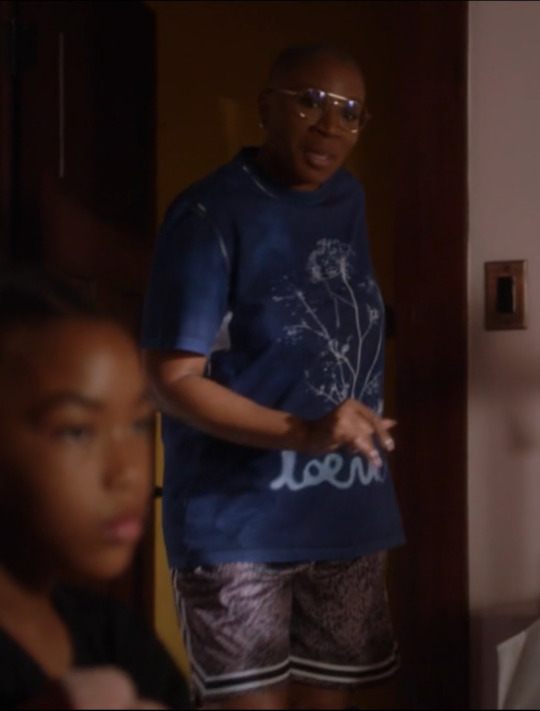
Hen in a bright pink hoodie when the pink = naivety and innocence theme we have for this season is going strong, it does also play into the idea of secrets and cheating a bit as well - as we see Deidra give them a way to contact Maras half brothers family, and the implication that Mara's mother cheated on Maras father is made clear as well.
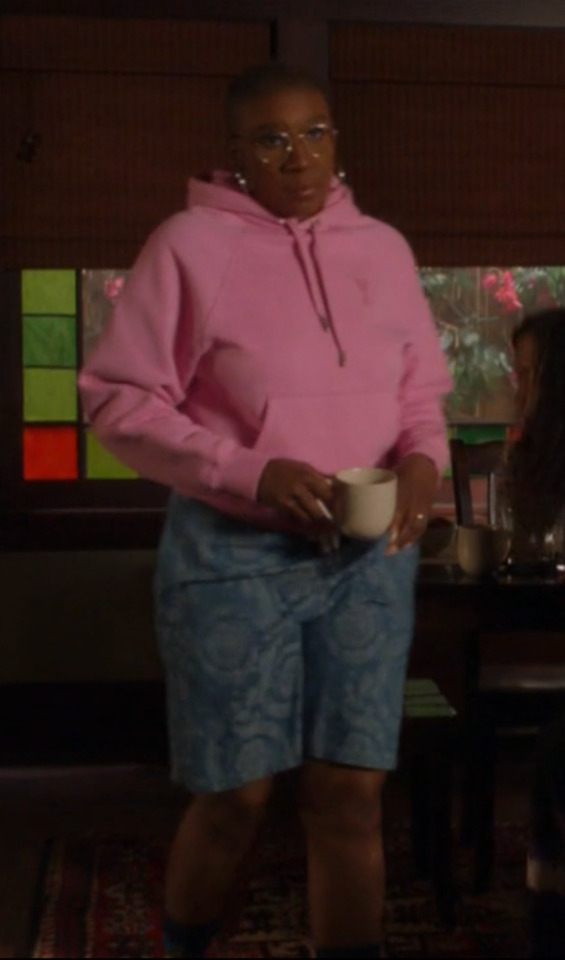
Then we get this birth of love jumper with pink roses on a gold background. gold in colour theory mean optimism, enlightenment and prosperity and with pink roses meaning gratitude and new beginnings, the symbolism of the sweater is pretty clear - even without the words 'the birth of love' wrtien on it - along with mara being in yellow and back in contact with her baby brother, all things are looking pretty positive in the Wilson household right now!
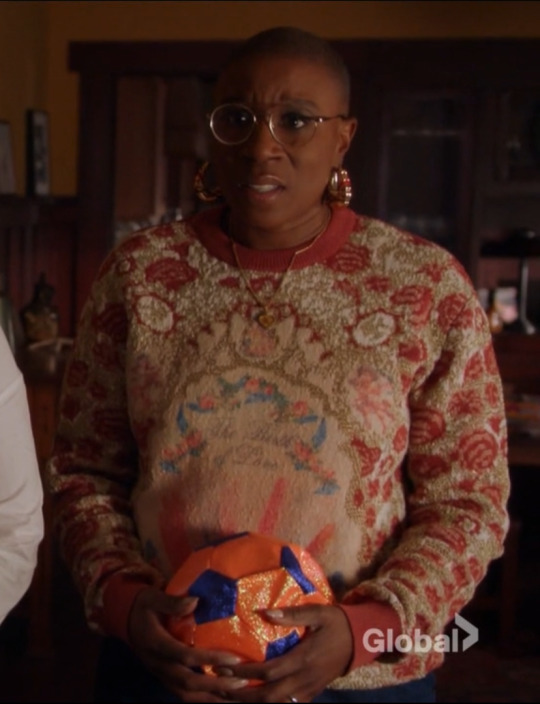
Maddie
its all about the pale blues and lavenders for Maddie this week.
The pale blue we see Maddie in here plays into the same blue theming we've seen Buck wearing since the end of season 5 - this is all about Maddie getting some closure and moving on from her past - leaving Doug and the trauma he put her through in the past. The blue bookends that mini arc for Maddie in this episode - showing her still doing a bit of processing over her trauma surrounding Doug and his kidnapping of her.
We also get the tan coloured jacket with its golden wrm undetones - its within the brown spectrum of the colour wheel and therefore plays into the theme of stability and protection.
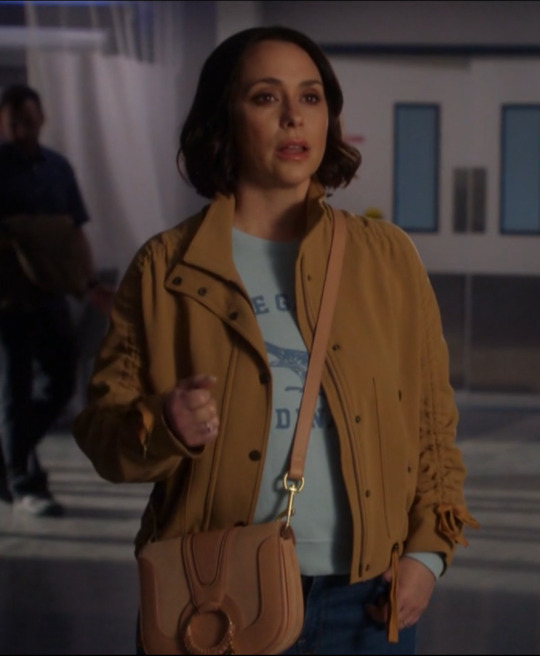
We also get this beautiful lavender colour in the middle of it all as well. Lavender is a colour of cleansing and tranquility - which ties in nicely to Maddies pale blue closure and moving on journey for the episode.
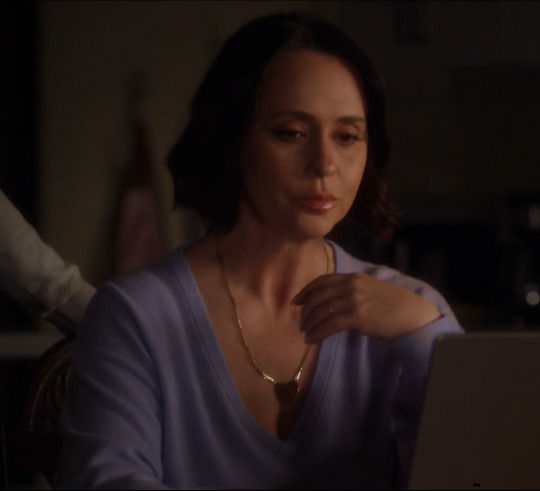
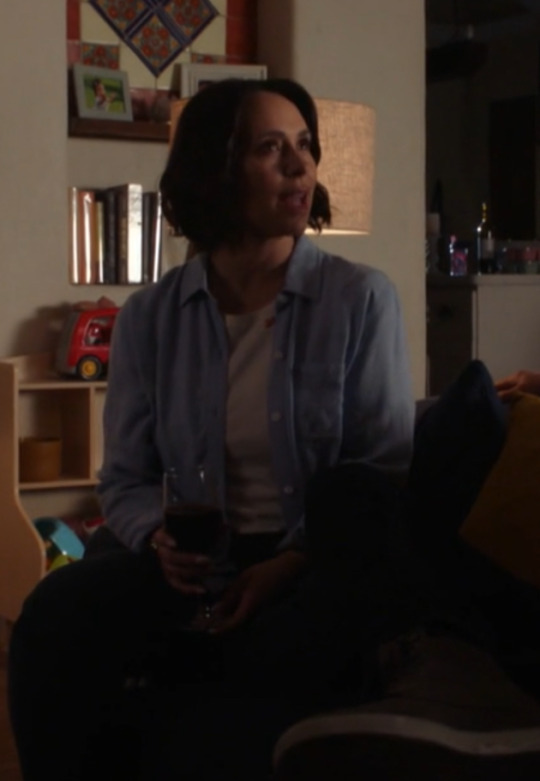
Buck
Buck decided to just play out the green and blue colour theme on his own this week - the dark bottle green shirt with a navy blue apron thats messy and stained is an interesting choice! This is the second time this season we've seen Buck in this dark green shade, and both times have been around Eddie and both scenes have related to issues with Eddies relationship with Marisol and the idea of keeping secrets of some description.
combine this with the other times we've seen Buck wearing this dark bottle green and things become even more interesting
-2x18 - Buck and Ali relationship end -3x12 - skateboarding -3x16 - when Buck takes Red to see Cindy -5x13 - when he confesses to Taylor about kissing Lucy -5x18 - when he breaks up with Taylor
the skateboarding scene is the only one that doesn't fully fit the bottle green narrative at play in the other three scenes - its also the only other scene where there is no blue present - Eddie is wearing white and buff, so it can be discounted from the pattern by virtue of the lack of blue.
All 4 of the other scenes involve a relationship crisis point of some description - Ali all but ends their relationship (side point here, Buck is also wearing blue and green in this scene as the hoodie is lined in navy blue).
- Red discovers Cindy has dementia and cannot remember him - ending any hope of that relationship being something he can pursue. This scene does however sit slightly apart from the later scenes as well - by virtue of Red being the character involved - and not someone Buck has a close personal relationship with - Red is a new friend.
Buck confessing he kissed Lucy puts his relationship with Taylor in jeopardy and it then ends in 5x18 - both of these scenes play into the theme of the lack of trust and of secrets on top of the relationship crisis points.
So to combine those scenes with the two from this season - all involve a crisis point in a close relationship along with secrets and to a greater or lesser extent a lack of trust, leading to a breakdown or termination of a relationship. So while on the surface this is all pointing towards some form of relationship termination, my feeling is that isn't the whole story. I do think it still points towards a relationship crisis point for Buck and Eddie (as well as Eddie and Marisol and Eddie and Kim) when the fact Eddie is cheating on Marisol comes to light, the fact that Buck is also the one wearing the blue and not Eddie, points me towards thinking that Buck will also be the one to ensure that any break between him and Eddie is only temporary - because ultimately Buck has been on both sides of the coin - he has been cheated on (Abby did't technically end their relationship so Buck was technically being cheated on) and been the one to do the cheating.
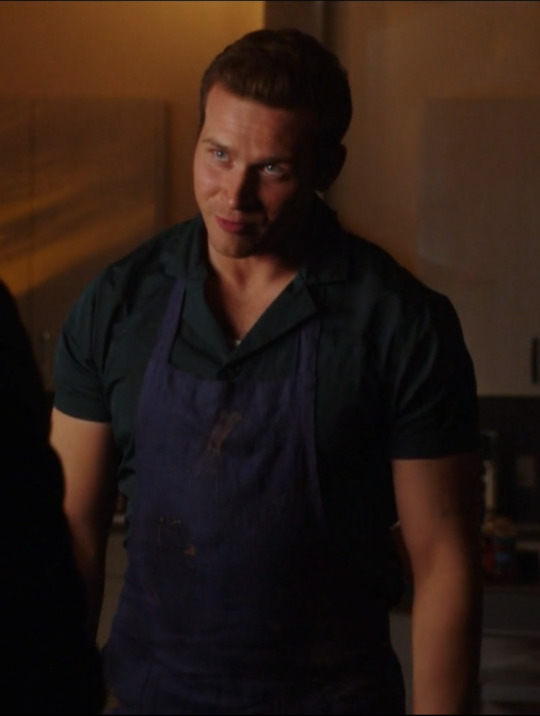
Chris
Chris is the only colour in this scene - we have Eddie in white and buff and Marisol in white and black - both effectively devoid of colour - meanwhile Chris is sat between them wearing green and red - and check gets thrown into the mix as well.
The fact he is placed directly between them for most of the scene is an indicator that it is this 'family' dynamic that is going to fall under the curse of the check pattern - the check is foreshadowing the entrance of Kim later in the scene, as well as the future end of the relationship between Eddie and Marisol and Chris and Marisol.
The green is also closer to Eddies army greens than we've seen Chris in before - playing into the idea of Chris and Eddie being similar in their behaviours and mannerisms - again its a form of foreshadowing Eddies cheating arc sitting in parallel to Chris's one.
Meanwhile the red is a signal of danger (it can mean passion, love etc as well, but in this instance - as its being used in check pattern - its more a symbol of danger - a warning!).
I'm also fascinated by the foreshadowing this outfit gives us as well - the red and green of Buck and later outfits - a signifier perhaps of the check also hinting at conflict ahead for Buck and Eddie over the fact Eddie is lying to Buck and to Chris - as the use of the two colours on all three of them in the episode (and only the three of them) really highlights them as a unit once again.
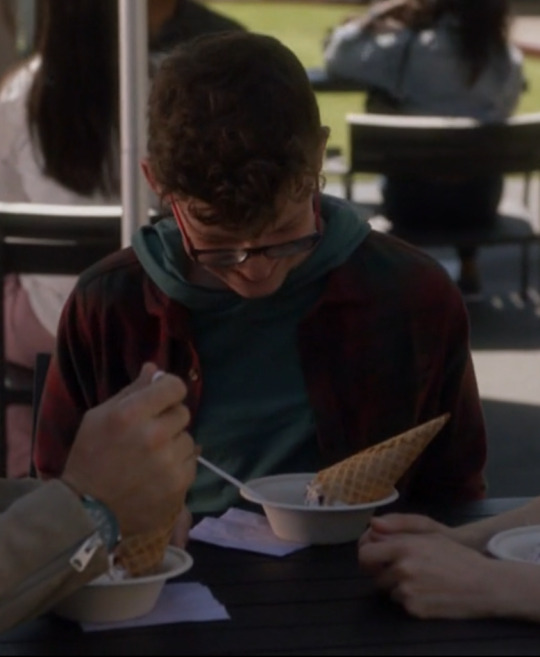
Then we have Chris in a white tee and a two tone denim jacket. I am sincerley hoping that the white tee is not a signifier of the same things as Buck being in white - Chris so rarely wears white, that I am hoping it is merely playing into the idea that Chris is a true innocent in the tangled web that Eddie is weaving - the web centred around his internalised idea that he needs to find another mother figure for Chris.
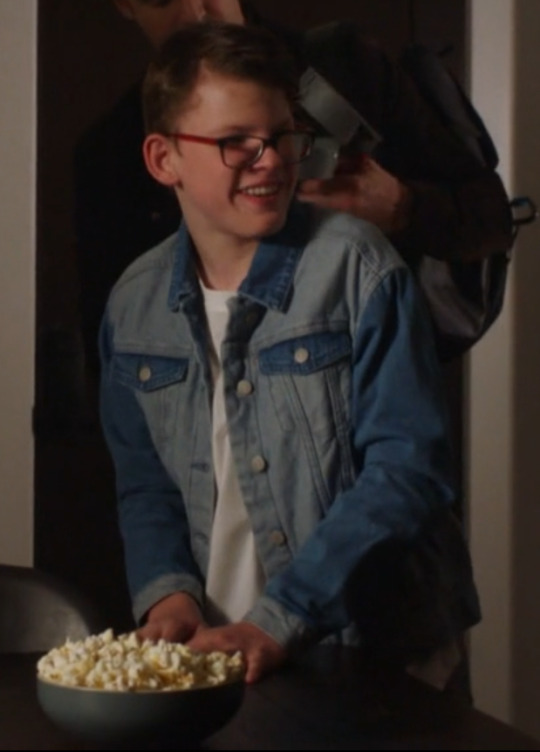
Marisol
Marisol in back and white stripes is paying into stripe theory rather nicely - its indicating that change is coming. We see the beginnings of that change later in the scene with the introduction of Kim. The choice to have the stripes in black and white is also telling - its a literal representation of things being black and white and plays into the theme of Eddie and Marisol's relationship lacking colour - its very telling that both her and Eddie have worn black and or white around each other far more than any other colours, I'm not saying we haven't seen them in other colours - we have - Marisol has also worn the bright pink top in 7x01 and the blue dressing gown (and the blue top from later) and Eddie has worn his army green but the fact of the matter is that black and white are the over arching colours the two of them wear in relation to one another and tied into that is the fact that none of the scenes she has been involved in have been about establishing her as a character in her own right - all of her scenes have been set up for either Chris or Eddie - the audience is being given very little to endear her to them and the black and white also plays that out - in fact we have had more establishment of Eddie and Tommy as friends in one episode than we have had of Eddie and Marisol as a couple across multiple episodes.
There is also the fact that white means purity and innocence - which as a novice nun is on theme for her - but it also plays into the idea that she is also an innocent party in the road Eddie is about to send them on.
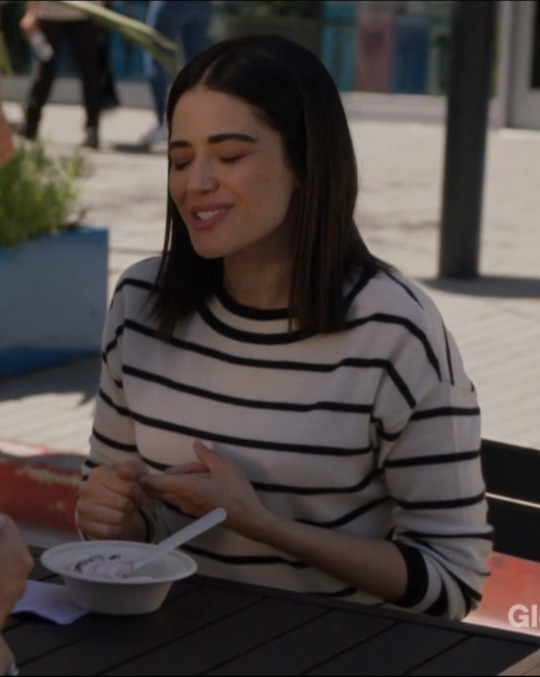
We also get more Marisol in Blue - its a bright blue that is very reminiscent of the bright blue that the Virgin Mary is depicted wearing in Catholic art - it plays into the theme of Eddies Catholic guilt that was established in 7x05 when Eddie found out she was a novice nun - its just yet more layering of this positioning her as a representation of the Catholic faith - as a representation of purity and goodness - she is intentionally meant to seen bland and too good an pure - its her literal narrative purpose.
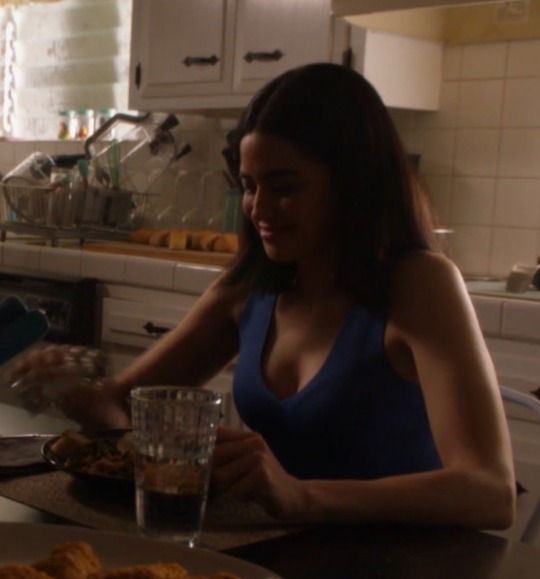
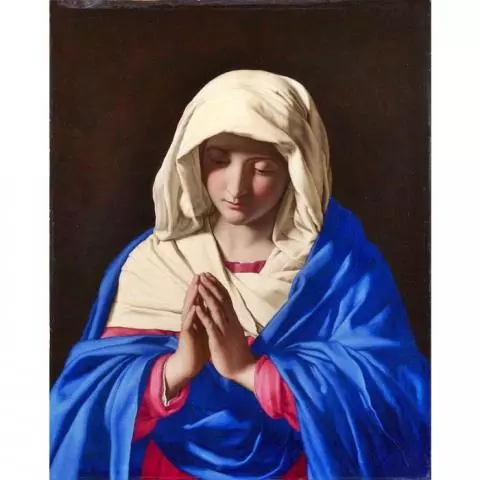
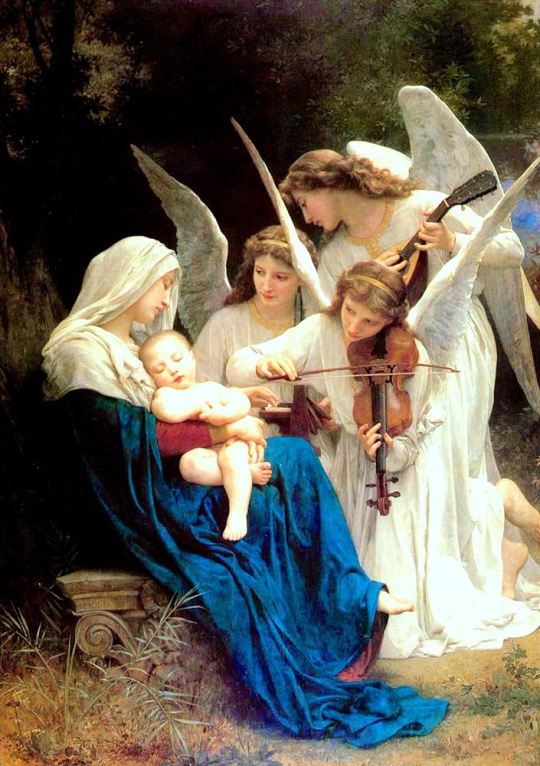
Kim
Ok sooo Kim the Shannon Doppelgänger! They've done a great job with costuming her to make her look very differnet to Shannon - which is a key thing. To start with all the colours we've seen her in so far sit on the opposite side of the colour wheel from Shannon - who was much more in the yellow orange and pink side of the wheel, while Kim here sits in the blue side of the wheel - interestingly the same side of the Wheel that Buck sits on. I've spoken at length about How Buck in the pale blues we've seen him wearing since the end of season five was about his journey of self discovery and figuring out who he is and what he wants - about moving forward and leaving the past in the past. The same could be said for Eddie here its just manifesting in a very differnet way - Kim is a projection of Shannon, so moving on from Shannon and leaving her ghost in the past is what Eddies journey is all about.
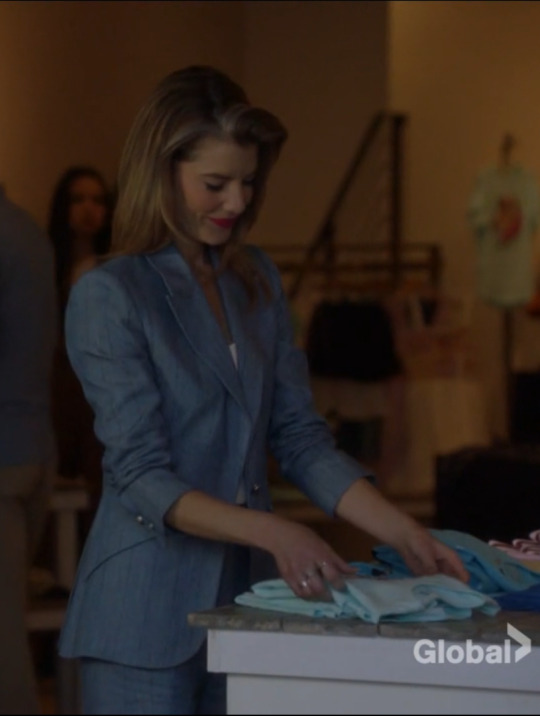
I am fascinated by the fact that this suit choice - with its vertical striped pattern and white shirt underneath also plays into 6x01 Buck and the lasagne of it all - especially considering we see Buck attempting a new lasagne later in the episode - there is something in the concept that Buck getting his lasagne right in that blue zip front jacket when Eddie is there to eat it, and then not getting the new lasagne he is trying out right when Eddie is not going to be eating it - things being successful and right when the three of them are together as the Buckley-Diaz family, but not being successful or right when one of them isn't present.
This as a concept places Buck along side Shannon - something we've already seen explicitly stated on screen in this season and in direct contrast to Kim - because not only is Kim a doppelgänger for Shannon, she becomes a doppelgänger for buck as well.
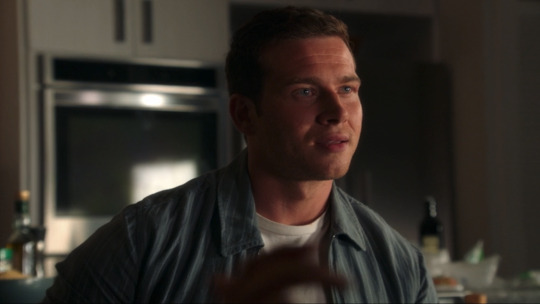
The blue and white striped top in the second Kim scene also mirrors Buck costumes from season 6 - the vertical stripes and the use of blue and white - it further emphasises the paralleling of the pair of them - because the implications are clear - Eddie thinking he's found this second chance with Shannon - a second chance at happiness with when the reality is that Buck has been there all along - it plays perfectly into the Vertigo arc that Tim is using as well - Buck in the place of Midge - the best friend but the actual right fit for Eddie who has been there all along.
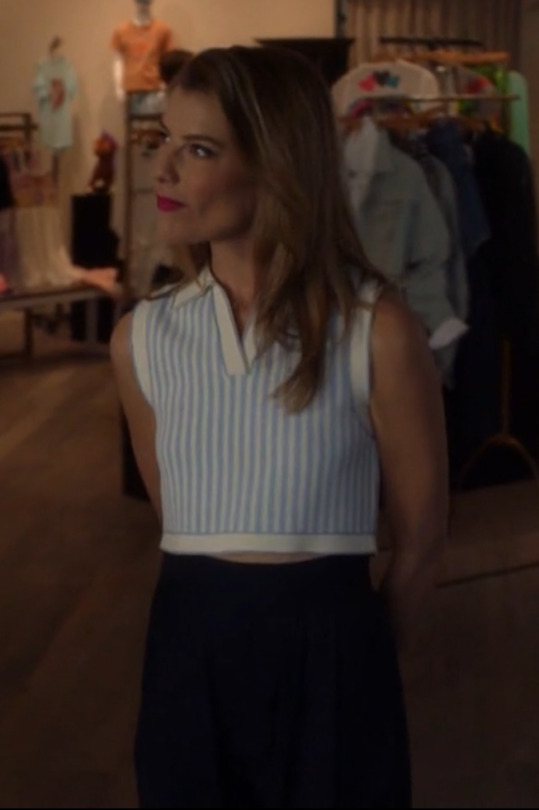
This black sheer top and leather jacket with the knotted updo is playing into so many themes that it makes me happy! the first and most obvious one is that its a very stereotypical 'other woman' outfit - the sophisticated seductress. It also plays her into the opposite of Shannon - dark versus light - all the flashbacks of Shannon we saw in this episode were brightly lit and bathed in light - giving her an angelic and heavenly aura - a play on her status as an angel (both in terms of her being dead, but also in terms of Eddie having rose tinted glasses on in regards to their relationship and her as a person - that common trait of making saints of the dead - especially when their death was traumatic and left things unfinished - as we have with Eddie)- Kim her is lit far more darkly and the glow of the light has a much more orange and therefore darker tone to it - its a play on temptation - the updo and leather also give her a slightly serpent like air - she is Eve tempting Adam to eat the fruit - it is serpent like. This theme plays on the other religious theme we've had established around Eddie - with Marisol being placed into this Virgin Mary role - here we have Kim being placed into her opposition as the devil - I am not saying she is evil - this is about Eddie being tempted by trying to get back what he has lost - she is a physical manifestation of what is happening - of Eddies internal struggles with his catholic guilt - much in the same way Marisol is a manifestation of the opposite side of that catholic guilt coin - they are the extremes that are pulling on Eddie in physical form and Eddie needs to find the balance.
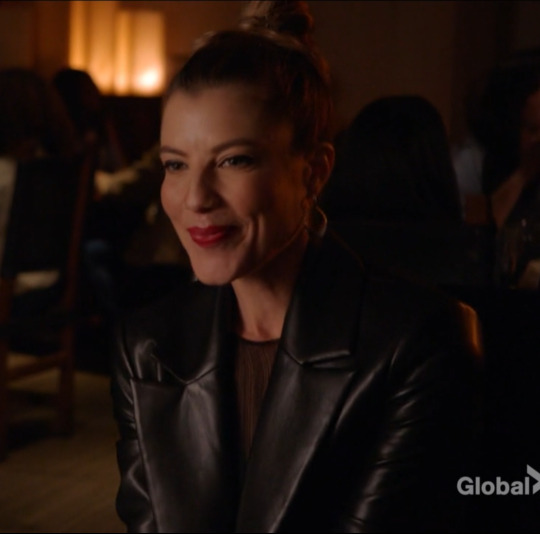
Eddie
Boy oh boy do we have a lot to talk about with Eddie this week!1
There are three key themes at play with Eddie in his costuming this week and its so so good, I'm obsessed with the choices being made.
Starting out with this white tee and buff suede jacket which ties into three separate scenes which are key in relation to Christopher and Eddies relationships with women and the the theme of Eddie looking for a mother for him.
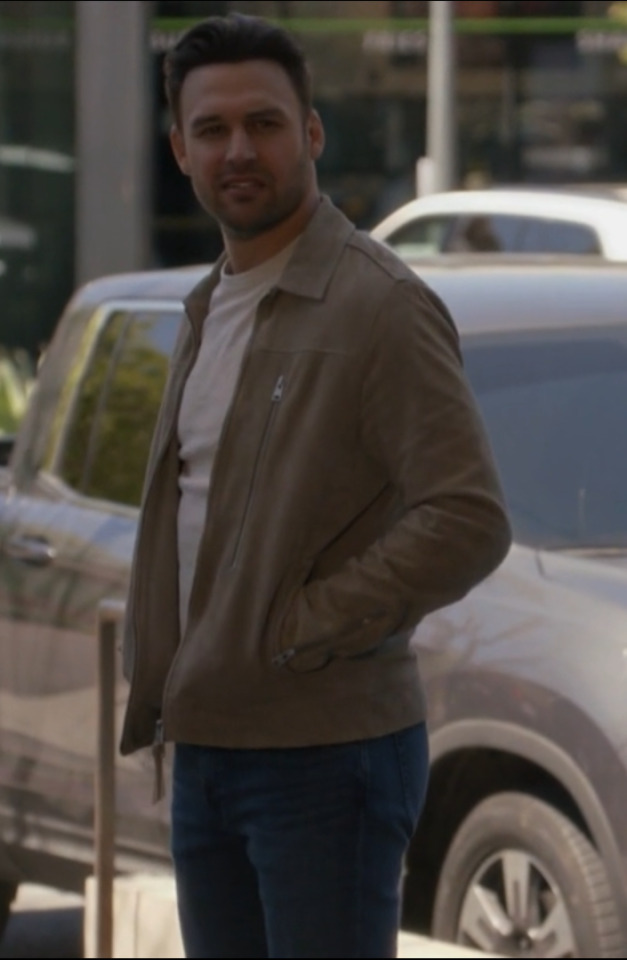
up first - the moment Eddie lets Shannon back into Christophers life - this one is pretty obvious on the mother front - Eddie is literally letting Christophers actual mother back into his life. this jacket is closer to brown than the buff colour of the one above, but it still plays into the theme - its the point at which the theme is established.
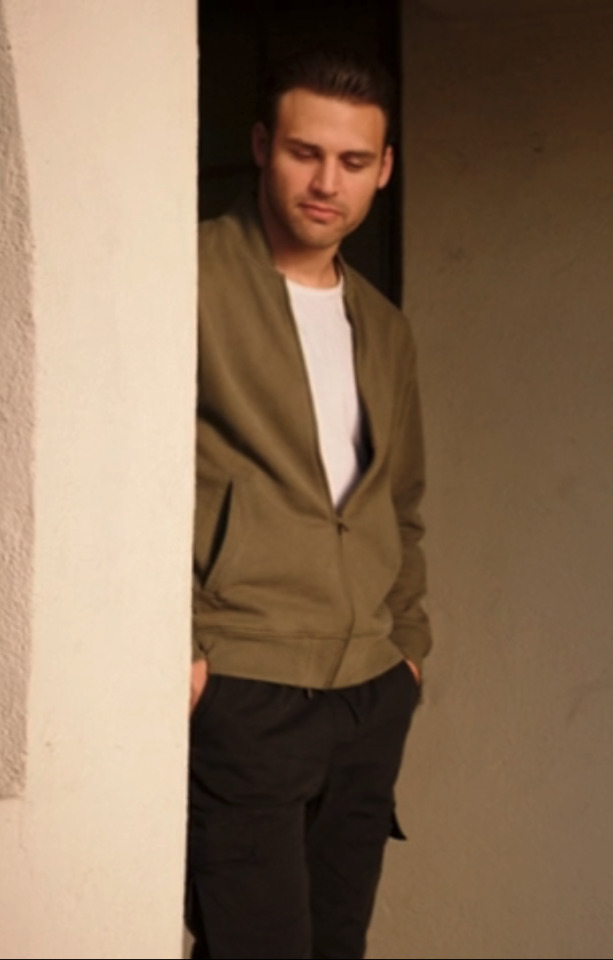
Then we have Eddies talk with Bobby about Shannon and re proposing to her as well as the possibly of her being pregnant again. Its a key turning point in his the relationship with Shannon - it is the moment that idealisation starts to creep into Eddies perspective on her and the moment when past, present and future collide - the concept of having Shannon and not having Shannon.
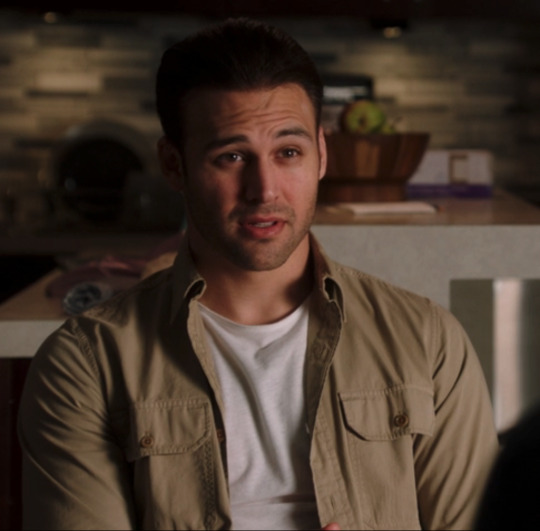
Finally we have the skateboarding scene - which while being a key moment of bonding as the Buckely-Diaz dynamic continues to be established in season 3. The jacket here is the closest to the one from 7x07 and this scene comes on the back of a couple of scenes with Ana - who was wearing pale blue in one and white (with red flowers) in the second.
All of these scenes when combined with the scenes from 7x07 establish this white tee - buff/beige jacket or shirt colour way as being about Christopher and Eddies desire to give him a mother figure - that the final scene - the skateboard scene very clearly shows Buck becoming a key figure in Christophers upbringing in a far more visual and physical way - Eddie is and active participant rather than standing on the sidelines as he is in all the others - along with the choice to show buck in the dark green in the same episodes - showing Buck in a semi parental role back then to show him in an even more parental role in this one (the 'we won't wait up' was a definite choice on the script front when it had been established that Chris was staying over at Bucks and Eddie wasn't returning until the following day) - especially when you also have Chris wearing red in both episodes.
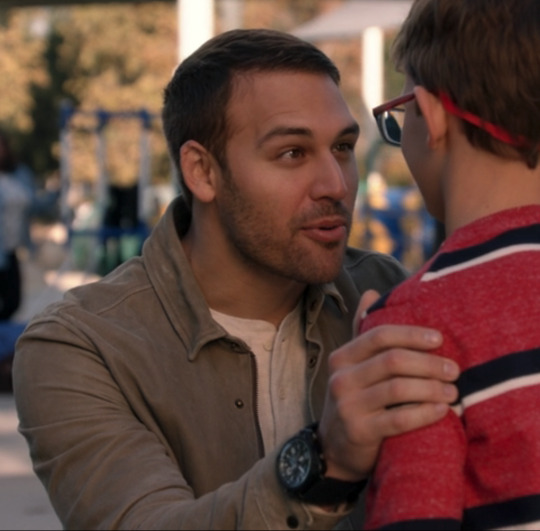
Eddie in a black shirt - one that is the same as the one from 7x06.
There is a lot at play with this black shirt, and a lot at play with black on Eddie more widely, but first up - The Christopher watch. It was so very present in this episode - the shirt cuff has been tucked underneath the watch to ensure that it is visible - because they want to ensure that we see that Christopher is still front and centre in Eddies mind through all of this - it is an indicator that Eddie is not dating any of these women for himself - they are all in one way or another for Chris.
The clincher on the watch front is that the first time we see it is when he goes on his first date with Ana - the first time he is trying to 'recapture' the magic he had with Shannon and the first time he starts dating to try and give Chris a mother figurre. The fact it is so present when he goes back to the store to see Kim the Shannon doppelgänger is proof enough that this is as much about Chris as it is Eddie - the ghost of Shannon continues to loom large in both of their lives and Eddie is very much still trying to find her again for the both of them.
The other - slightly more unhinged aspect of this is that he wears the Christopher watch out to his date with Kim later on - making it still about Christopher. The reason this is unhinged is that the one time we have seen Eddie go out on something resembling a date and not wear the Christopher watch was the poker night with Buck - I said at the time the fact that both Eddie and buck were wearing new watches was important - here we start to see its significance play out - that poker night was for Eddie (and Buck), not for Christopher in any way - if Marisol or Kim were meant to be endgame or even truly long term - then he would be wearing that watch on his dates with one of them - the fact he hasn't speaks volumes (and speaks volumes for the buddie of it all!).
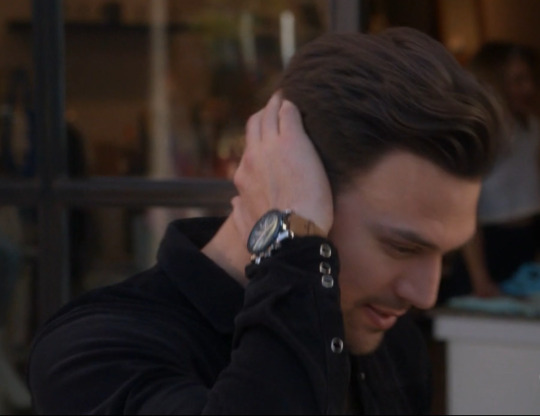
the shirt itself being worn for this meeting and coming off the back of two key scenes in 7x06 tells its own story. Whilst Bucks coming out to Eddie scene is about his coming out, it is also about establishing Eddie not knowing/realising that Tommy was gay, as well as about the idea of
His wearing it to reverse his relationship with Marisol back to them not living together - to start over is obvious - the magic with her wasn't magicking, but because of his determination (subconsciously) to find a mother for Chris he rewinds rather than ending the relationship. This remains the key scene for this shirt in that episode and ties into his wearing it in this one - its all about rewinding the clock and trying again.
The thing with Eddie in black (apart from the singlets which are their own themed thing - although it still ties into the wider Eddie in black theme) is that its a colour he has worn so specifically in relation to his mental health and in connection with Christopher (and Shannon).
I'm not going to go through every instance of him wearing black - it would take way to long, but I am going to pick out a few key moments when he is wearing it - specifically shirts
2x17 - the reproposal/ divorce scene 3x12 - parent teacher night at school - mets Ana for the first time 3x15 - Christopher birth (flash back scene) 4x13 - follow your heart not Christophers scene 5x01 - Panic attack scene 5x10 - tells Carla about the hostage situation - after Chris's meltdown 5x17 - Ramons retirement party
We also have him in 6x11 in his widows weeds at Bucks bedside and in 6x17 a long sleeved waffle tee when he 're' meets Marisol at the DIY store
In regards to Marisol - he has worn black more than any other colour in relation to her (not that they've had many scenes together, but half of their scenes have been in black, and that includes their 're' meeting in the hardware store - not technically their first meeting, but Eddie was in uniform the first time they met.
The black is playing two roles with Eddie - there is the fact that it has duel meaning - it is associated with magic - specifically dark magic as well as darkness/depression, secrets and power. I know I haven't listed all of the scenes he wears black and long sleeves above - but the fact that those scenes I've listed are so very central to Eddie, fatherhood and the various women in his life is pretty telling. The fact that both Ana and Marisol were both met in scenes where he was in black or that so many of the other scenes were connected to pivotal moments in his relationships with all three women (Shannon, Ana and Marisol) - in the same way the the dark green has been for Buck - and the fact that so many of the scenes tie into the theme of his heart and not following it plays into this idea that he is in mourning - that his grief is central to all of these relationships - and that includes this new one with Kim.
Setting his first meeting (as in actual conversation) with Kim against this backdrop of his previous relationships, grief and his 'struggle's with fatherhood (including his relationship with his own father) sets this relationship off on the wrong foot regardless of the cheating aspect or the fact she is Shannons doppelgänger.
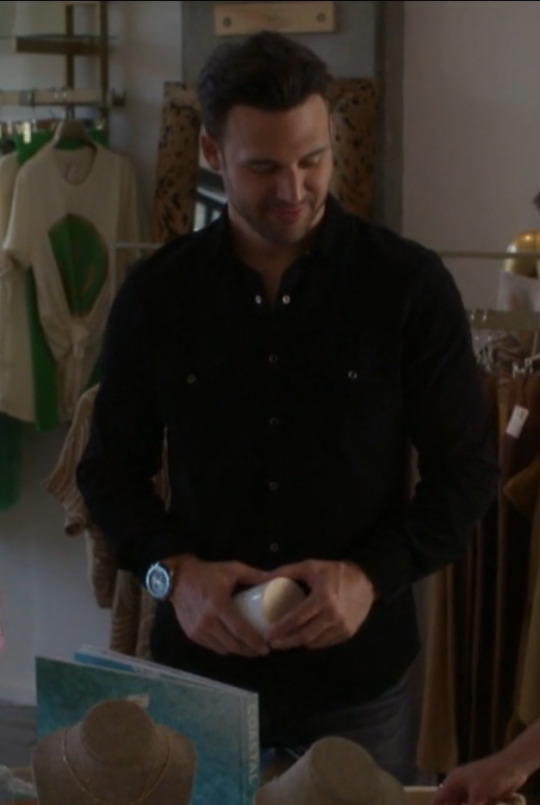
Sorry, both the pictures from 7x07 have terrible lighting - it was basically impossible to get a good still of either shirt that showed off the colour!!!! I am however obsessed with the choice to put Eddie in maroon twice in this episode - and in long sleeves at that!
The reason for my obsession - the way it plays into yet another Christopher theme. Eddie wearing Maroon long sleeved shirts (espeically Henleys) in relation to Christopher and his choices as a parent. So in this Episode it happens twice - we have his meal in the Diaz kitchen with Marisol, and then at the end of the Episode - his date with Kim - While neither scene directly involves Chris, both play into this idea of everything Eddie does in terms of his relationships in connected to Chirs - he daydreams about bringing Shannon back into Christophers life - in a better more honest way than he actually managed to do in the real world (proof of his rose tinted glasses being firmly on when it comes to Shannon) - righting the wrongs he feels he did her, then later on he drops Chris off with Buck (the other actual parental figure in Chris's life) before going on a secret date wit ha woman who looks like Shannon and Eddie is viewing as a second chance - a second chance not just for himself, but also for Chris - because Chris is missing his mom - something the show established early on in the season and the trigger that is sending Eddie into this current spiral.
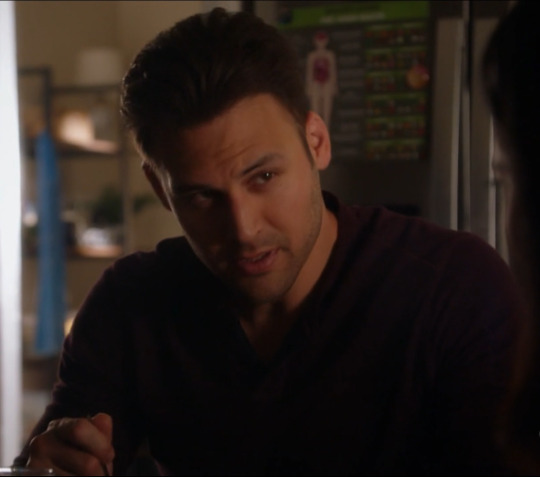
All of the scenes Eddie has worn this colour in previously (by this I mean without the presence of other colours via jackets etc) - and they're aren't that many - are deeply connected to Chris and Eddies struggles with fatherhood.
We have this scene from 2x10 when Chris confesses his Christmas wish is to have his mom back - which leads to Eddie feeling guilty about his choices as a father and ultimately leads to Shannons return to Christophers life.
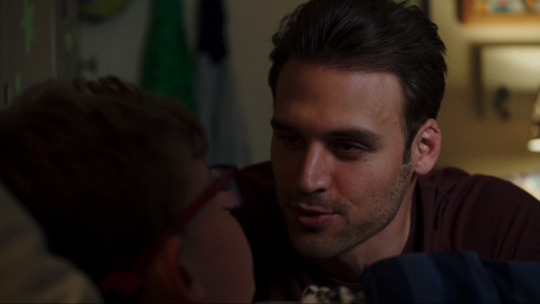
then we have Fight club Eddie in the aftermath of nearly killing a man from 3x08 - This is the only other time we see him in a Henley and the fact that the conversation he has with Bobby is so heavily intertwined with the concept of Eddie needing to be in control for Christopher - he is once again at the heart of the scene, even in his physical absence from it. It is also turning out to be an even more key scene - Bobby makes the all important comment
'Eddie I just want to make sure you don't think you have to lose everything, before you can allow yourself to feel anything'
this line is very much coming into play now - Eddie did not listen to Bobbys advice and is now setting himself on a course to lose everything. That implies that he will then finally start to feel things - able to move past his continued grief and build a future for himself. The overarching implication is that Eddie has remained in fight club mode since this scene - just that the fight club is internalised and with himself - his failings as a husband and father.
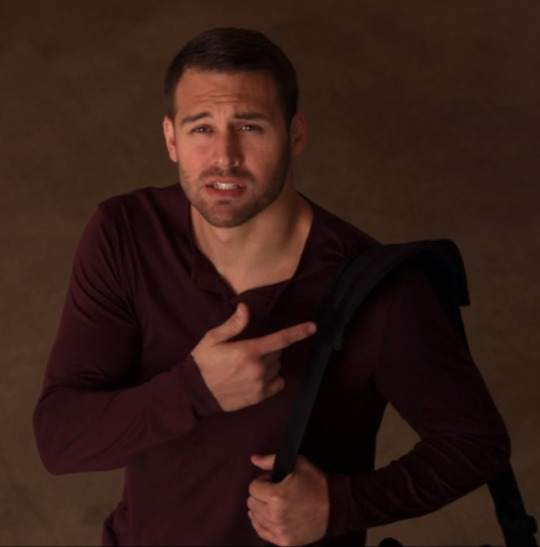
Chris goes off to summer camp in 3x18 - again a scene about Chris and Eddies role as father
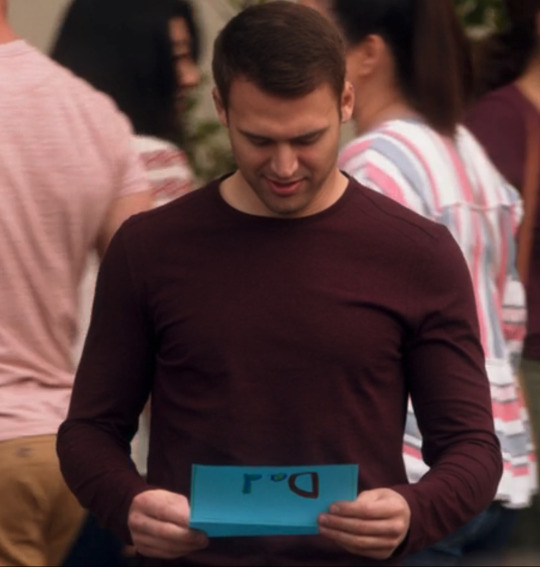
and finally his first date with Ana - this scene while not obviously about Chris in the moment - is in fact all about Chris - we see it borne out over the course of Eddies relationship with Ana, but the key factor is that this is the first time we see Eddie wearing a different watch to his work watch - a second watch - his Christopher watch - which I explained the significance of above.
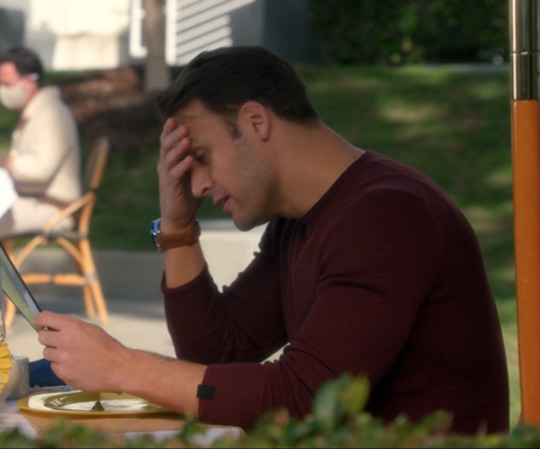
I've also included this tee from 6x12 because although it has short sleeves rather than long ones, it is adjacent to all of the above - he is making Christophers lunch while he and Buck talk later on after Buck has enjoyed his nap on Eddies couch, but it is also the closest they have come to talking about the will. Eddie is also not wearing a watch at all at this point - in a precursor to the poker date two episodes later, this moment - about letting yourself feel things rather than boxing them up inside feels like a key counterpoint to the reality of Eddies arc for this season.
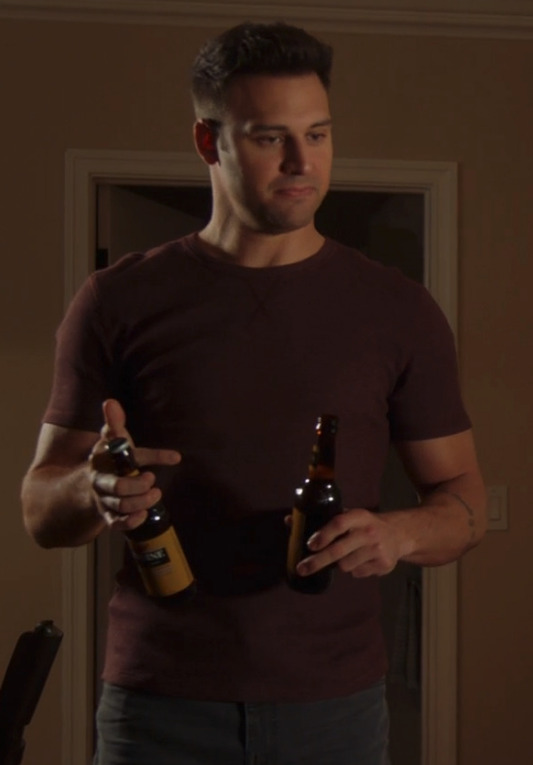
The other thing about the red shirt black jacket combination along with all the above, is that it also juxtaposes the date with Vanessa that Pepa set him up on - the idea of wanting to be on a date versus not wanting to be on a date, whilst also ensuring black is a central theme with Eddies costuming arc this season.
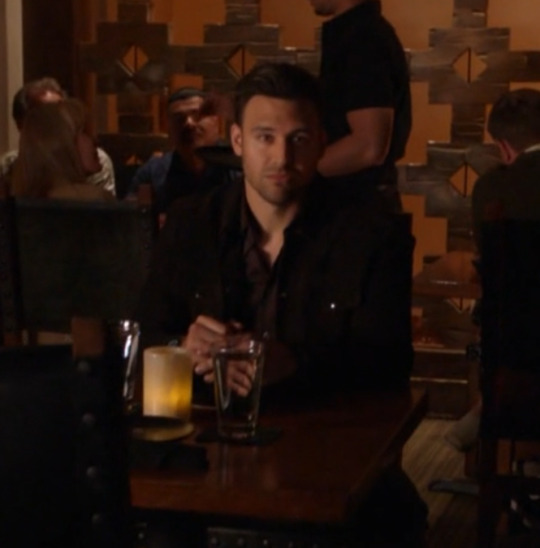
Thats all for this week - Sorry again that it took so long to get written and posted - but I hope you enjoyed it none the less!
Tagged people below!
@theladyyavilee @mistmarauder @xxfiction-is-my-realityxx @bewilderedbuckley @spotsandsocks
@bewitchedbewilderedbisexual @rogerzsteven @wanderingwomanwondering
@oneawkwardcookie @leothil @copyninjabuckley @shammers86 @crazyfangirlallert @missmagooglie @katyobsesses
@radiation-run @gayandbifiremenofmine @bi-moonlight @crazyaboutotps @princesschez75 @alliaskisthepossibilityoflove
@sherlocking-out-loud @satashiiwrites @lover-of-mine @yramesoruniverse @extasiswings @favouritealias @pop-kam @b-dwolf @maygrcnt
#kym costume meta#911 costume meta#911 costumes#911 colour theory#911 abc#eddie diaz#evan buckley#marisol nolastname#Kim#shannon Diaz#maddie buckley#christopher diaz#hen wilson#off to lie down after the struggle that writing this one was!#I hope the tagging works - its being weird again - grrrr to the tumblr gremlins!
118 notes
·
View notes
Text
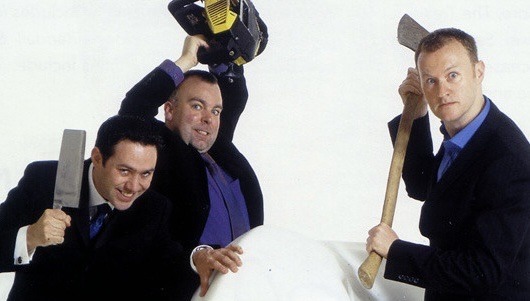
maybe the details of art are common knowledge, but i only read up about it yesterday. it's interesting! it opened in the west end in 96 & was something of a popular hit
it's about three old friends who fall out when one of them buys an expensive painting that's an almost-blank white canvas (a quiet night in); one of them aggressively disapproves, calling it pretentious; and the third is caught in the middle trying to keep the peace
had a ton of casts – a new one every three months. (the effect of this is interesting – more on that below.) tlog were selected to be the last lot before it closed in 02. if you don't already know, who do you suppose played each role? it has nothing to do with the weirdly deceptive promo pics. answers & more below the cut
mark played the friend who buys the painting, steve played the one who disapproves, and reece played the guy caught in the middle. i wonder how that decision was made. i wonder if they considered any alternative configurations (bf had steve & reece switched, which i think makes a lot of sense). as always i'm like. but what does the character say about YOU
they got mixed reviews. nearly every review singles out reece's delivery of this monologue, though they disagree on whether it was good or not. perhaps surprisingly, they don't uniformly characterise it (or his performance in general) as particularly angry. not to be dramatic but i would kill and die to have seen it, just that monologue alone
so below i've collected the most interesting parts of surviving reviews. the last one is my fav. some of them have interesting things to say on the effect of the rotating cast, sort of the opposite of the in9 meta-character effect, which i think is pretty funny & fitting
BBC
Reece Shearsmith is a little too giddy with Yvan's furious diatribe about his impending wedding - the laughs are landing so hard that some others are being lost in the process. But he is a particularly touching and vulnerable go-between, desperately sitting on the fence in the conflict that erupts between his friends Serge (Mark Gatiss) and Marc (Steve Pemberton), and finding - as you do - that those who sit on fences are liable to get splinters.
GUARDIAN
[A] play as bland and flimsy as this requires actors who are not only heroically talented but who also have formidable technical skills. Pemberton, Gatiss and Shearsmith don't. They are likeable, even mildly engaging but you are always aware that they are putting on a performance. What's more, they are far less funny than the two other casts I've seen. Shearsmith, for example, flunks the timing of his long monologue so instead of making an audience rock with waves of laughter, he gets only one big laugh right at the end. The silences in the evening, in particular the famous olive scene, are not eloquent, just empty.
THEATREGUIDE
I've heard, though, that other casts have had other dynamics. With some, it plays as light comedy, satirising everyone's pretensions to high passions. Others make it a touching study in the fragility of friendship and all three men's hitherto-unrealised need for it. The cast changes every three months or so [...] Just be prepared for the fact that the show you see will be different in tone and effect from the one your friends saw last year, and will probably be a glib skating over the emotional issues and implications it raises. [...] And while the laidback, indeed colloquial, approach of Mark Gatiss (perky Serge), Steve Pemberton (laconic Marc) and Reece Shearsmith (wickedly neurotic Yvan) may not be to everyone's taste, it's undeniably perfect casting to complete the spectrum of wall-to-wall talent that's made the show such a feature of London's theatrical landscape. [...] Playing cheekily with rhythms of speech and timing, they create a very English rendition of what is essentially a French play, substituting the de rigueur dramatic devices and flourishes with frighteningly real personalities that transcend the dramatic crutch of Yasmina Reza's Continental-style philosophizing text and sub-text. Admittedly the first ever cast of Courtenay, Finney and Stott all those years ago set the benchmark for the production (though I found them yawnsome and wooden) - and the League have the advantage of tapping into the accumulated performances that followed.
i think "laidback," "colloquial," "cheeky," "English" and "real" might be euphemisms for northern – more on that below
CIX
Having now seen Art three or four times (to be honest, I forget which), I've begun to muse that in some strange way it's a metaphor for itself. It's not just the performance dynamics, our impression of the trio's relationship, that varies from cast to cast... it's the very sense of how much real content there is in Reza's play, of whether it takes its thematic concerns about inherent versus attributed qualities (whether of a painting or a person) very far or not. In a sense, the performers are the series of diagonal white lines painted on to the white canvas of the play. And like the lines in the painting on stage (or so we're told), they're not pure white: some are vaguely yellow, some are sort of ochre-ish... In the case of the League, the bizarrely unrelated publicity images make clear that what's hoped for is a kind of fake-blood crimson tinge. So although there's no real indulgence, director Jennie Darnell allows the three to turn in a slight caricature of the naturalism with which the piece has usually been played, that little unreality often seen in the kind of sketch comedy where the group cut their teeth. The elegant apartment set is a world away from the League's fictional town of Royston Vasey, but the casting of the individual members plays to respective strengths familiar from their various screen guises. As Serge, who has paid 200,000 francs for the picture, Mark Gatiss exudes an appropriately smug and supercilious cleverness. As Marc, who faces off against Serge by declaring the canvas "shit", Steve Pemberton is more mercurial, with an air of suppressed violence. Reece Shearsmith, the relatively cuddly one [sic], succeeds in focusing audience identification on Yvan, the less smart piggy-in-the-middle. All three are of course skilled performers, and you can see the rapport gained from up to fifteen years' collaboration in, for instance, the way Gatiss and Pemberton trade facial "mugs" as they first consider the painting. However, this very affinity with each other enables them to skim over deeper elements in the play. When Shearsmith gabbles out Yvan's great bewildered set-piece about the complications of his wedding arrangements, we applaud the high-speed delivery but don't pick up enough of what he says to engage with Yvan's travails.
kissing this reviewer on the mouth for specifically describing what he thinks their respective strengths are & especially for describing reece as THE CUDDLY ONE like... idk if it shows but i'm obsessed with how people see them, and how they see themselves & each other
EVENING STANDARD
Not so much a piece of headline-grabbing stunt casting as three trained actors flexing their thespian muscles [...] bona fide drama graduates, not comedy chancers. This immediately shows, from their poise, projection and presence. Only the dimple-chinned Pemberton as intolerant Marc comes close to his rogues' gallery of BBC2 personae during moments of rage when he cannot come to terms with Serge's purchase of an overpriced minimalist painting. By contrast, Mark Gatiss as the punctilious, pretentious Serge is the epitome of restraint, as cool as his sharp, charcoal suit. The comic moments are all in context. Shearsmith, as the boyish Yvan, is increasingly troubled by his imminent nuptials. This eventually spills out in a breathless pseudo-Pythonesque rant against marriage that is as funny to witness as it is difficult to say. But throughout, the trio respect Reza's text, sidelining their insatiable appetite for the grotesque that has made their their brand of humour so distinctive. This may, however, be problematic. Having sold out in the West End with their sketch show a couple of years ago, some of the threesome's intensely passionate fans may see Art as a follow-up and feel shortchanged. The eye-catching poster may compound the deception, the chopper, axe and chainsaw being wielded suggesting some Grand Guignol flourishes which never materialise.
BBC AGAIN
The northern accents do not quite ring true in the sophisticated setting of a Paris apartment and often lead to flat performances, where one gets the feeling their brand of wit is not quite enough to portray Parisian conceit. The strongest display by far comes from Mark Gatiss (Serge) - the eerie butcher in League of Gentlemen - as the tall, slightly effeminate doctor who acquires the painting, striking just the right balance of preciousness and acerbic wit. The diminutive Reece Shearsmith is adequate in his portrayal of Yvan, the put-down-upon soon-to-be-married stationer caught in the middle of the feud between his two friends. But the biggest disappointment comes from Steve Pemberton, who plays Marc, the critical compadre who takes Serge's indulgence for contemporary art as a personal slight. Pemberton, normally the trio's strongest performer, well-known for his brilliant turn as Pauline in the League of Gentlemen, seems ill at ease in the role. His northern persona cannot quite stretch far enough to inhabit the part of Marc, an angry homeopathic freak whose insecurity finds it hard to cope with his friend's show of independence over the painting. Like the painting, the play does not remain colourless throughout however. One of the highlights is Shearsmith's 10-minute tirade about the difficulties of coping with the women in his life ahead of his impending wedding.
yeah this one is definitely my favourite. casually calls them ALL scallies, then calls each of them out INDIVIDUALLY for being a) gay b) short c) shit. absolute legend. did they ever find this reviewer's body
related, from this article in the guardian:
"When we first did Art, a review said 'Yes, but can they act?' and that made me angry," said Shearsmith. "I remember thinking 'What have we been doing in The League of Gentlemen? It's not standup."
in 2013, reece said art was his favourite ever play to do. highlights from the replies
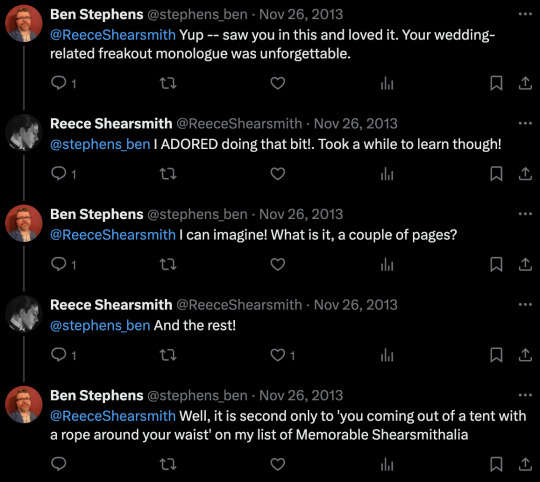
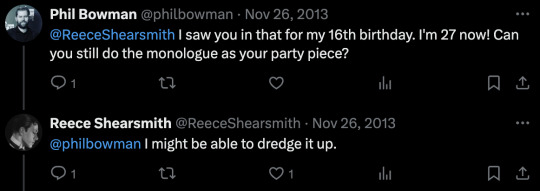

45 notes
·
View notes
Text
Ok, we all know the Metatron needed Aziraphale and Crowley separated. It's a scene that’s launched a thousand metas and speculations like the Coffee Theory and Aziraphale Lied. So now, here's a slew of what are undoubtedly reiterations: There’s the distinct impression that Mr. ‘To-speak-to-me-is-to-speak-to-the-Almighty’ Metatron has gotten a little too big for his britches. Various reasons could account for this - maybe he thinks it's impossible for him to do wrong because he’s literally on the side of the angels. Or he’s been doing this so long hearing radio silence, he’s gotten into the mindset that the Almighty has somehow chosen to disappear, like that sense of all-importance when your boss has been gone for an infinitely long time and you’re left calling the shots. There’s also a tiny probability that Metatron has ‘vaulting ambition’… In any case, the Metatron is not shy about pushing the agenda, using anything from bribery to authoritarianism to accomplish it. He’s downright dismissive of Michael, Uriel, and Saraqael and condescending towards Muriel, people he knows he’s already got well under his thumb. With Aziraphale however, he changes tactics- bringing him coffee, the illusion of a hefty promotion, and throwing in Crowley’s reinstatement as the clincher. There’s been so many beautiful posts and analyses illustrating Metatron’s deviousness, describing his actions as exceedingly exploitive. There’s a high probability that he manipulates Aziraphale not out of the belief he'll be an asset, but the fact that Aziraphale and Crowley together is a liability. The music over that dark side-eye carries a foreboding implication:

The Metatron does not care for Crowley.
Many proposals have been offered as to why this is, such as the theory that it was the Metatron who cast Crowley from Heaven for asking too many questions. Or perhaps the Metatron doesn’t necessarily see Crowley as a singular threat, but his influence on Aziraphale is another matter? Or it might be their influence on each other that his heckles raised. We've all seen it - where Crowley was ready to bolt when his mistake was caught and Armageddon seemed inevitable, Aziraphale remained steadfast in his determination to stop the War. But when Aziraphale gets it into his head that following a cause blindly is the best thing to do, Crowley snaps him out of it. They accomplish their goals together. Looking back over it, the predominant thing Aziraphale and Crowley did to help stop Armageddon was give Adam the pep talk he needed to defeat Satan. Before then, the Metatron believed he had just another good little angel in Aziraphale, a featherbrained minion who did as he was told. But then Aziraphale was gradually tempted by a demon, not necessarily into doing wrong, but into disobedience. Perhaps that is what Crowley represents to the Metatron, and the Metatron needs to be rid of it. The mix up was an honest mistake, Arthur Young being at the right/wrong place at the right/wrong time. But, of course, who was the other party involved in that mistake? Who first got it into his head that Armageddon should be stopped? Who held time to give our heroes a moment of reprieve for that pep talk? What if all the angels suddenly decided they didn’t want to obey anymore, like Aziraphale did? What if they follow his example? What if they don’t want to fight? The Metatron's got to nip that rotten apple in the bud…
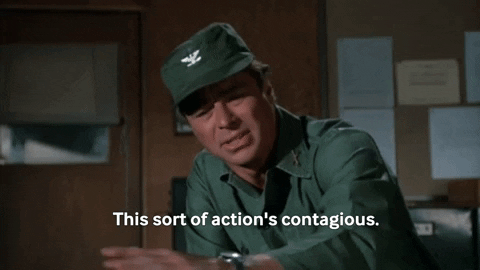

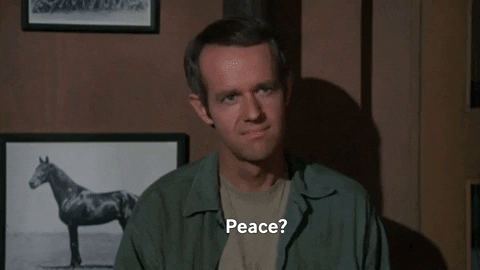
Heavens, we can't have that now, can we? "The point is not to avoid the war, the point is to win it." Well, that old chestnut didn't exactly work on Aziraphale, did it? The Metatron can’t order Aziraphale about anymore as if Aziraphale were a diligent foot-soldier. Both Aziraphale and Crowley have indeed gone native, adopting the most human thing of all: free will. Now, from a rudimentary understanding, neither angels nor demons can technically force a being with free will into doing anything. But they can persuade them one way or the other. Metatron knows this, and by god, he is good at it. Dozens of posts explain just exactly how he does this reaching right into Aziraphale's heart and fears. And in true angelic fashion, never does he even bother to acknowledge that Aziraphale " ...[doesn't] want to go to Heaven," or advise Aziraphale to consider what Crowley would want when presented with the opportunity to restore his ‘divinity.’ It's almost a parallel with Sitis - does she want to give birth seven more times? It doesn’t matter. “God” wants Job to be rewarded for loyalty, and Sitis was a conduit for that reward.
Another parallel between the story of Job and Aziraphale is an upstanding individual who staunchly wants to follow the Almighty's path, but he has a companion who’s more on the independent-thinking side - when something they care about is threatened, they acknowledge Heaven’s cruel treatment. The distinction here, however, is Job had the chance to speak to the Almighty themselves, not just the ‘mouthpiece,' and he had a decent pair of guardians looking out for him. Crowley and Aziraphale did the right thing by him and his family in keeping the children safe, while the other angels (and most definitely the Metatron) were content to let them die. It’s like neither angels nor demons (barring two… well, four now) have any concept of emotional connection. But the Metatron does understand connection, and for him it's a magnificent tool. He deliberately uses it against that once good little foot-soldier who’s gone AWOL. Not once does he try and convince Aziraphale that he’s strayed, but he maneuvers him into thinking that he and Crowley going back to Heaven is his own choice. Aziraphale likes doing the righteous thing, actually having an impressive work ethic when it's something he believes in, and what could be better than working as top boss in the Head Office of the Good Place? Aziraphale might see himself not only being the source of 'doing good,' but the one who can do the best thing there is and make changes for the better in Heaven itself. As discussed many times, the Heaven Aziraphale thinks he could create is the epitome of goodness, and, most of all, it can be a safe space for Crowley and him to be together. Aziraphale already assumes that this is what Crowley would want, and that Crowley’s retains ‘unhappiness’ as a Fallen due to no longer being an angel. The Metatron knows otherwise; not one person in the fandom believes he didn’t already know the outcome- that Crowley would say no. Again, there are so many brilliant posts highlighting why the Metatron had no intention of Crowley becoming an angel again. There’s the question if he even can. In fact, can the Metatron or any angel decide if an angel will Fall or a demon…er, Rise? That might present an alternative reason as to why Gabriel was demoted instead slated to Fall, because Metatron technically doesn’t have that kind of authority. In any case, it’s a ‘bluff’ that Aziraphale falls for hook, line, and sinker, and this time not even Crowley is able to convince him to stay. Now Aziraphale is driven by a cause he believes in, and perhaps he assumes that once he can prove to Crowley that he can change things in Heaven for the better, Crowley just might change his mind. By the same token, Crowley also might be holding onto that little shred of hope that Aziraphale will eventually come to his senses. It isn’t the first time the Head Offices have had them separated after all, and for all we know it’s not like it’s suddenly forbidden for them to talk to each other (though it probably won't be encouraged either). The Metatron, however, perhaps intends for the very opposite – to have Heaven change Aziraphale, which can only be possible without Crowley. Not that Aziraphale matters to the Metatron in the Great Scheme of Things (beyond his stubbornness being a force of nature), but at least he won't be fighting against the so-called Great Plan.
Then there’s the theories on the Metatron's motivations for this - for example, he could be concerned with how powerful Aziraphale and Crowley are together. And whether or not this popular theory proves to be true (though it carries a ton of weight), he can’t risk an interfering tag team preventing Armageddon again anyway; the Second Coming is approaching, and the Metatron is trying to be ahead of the curve this time. Gabe and Beez? Probably aren’t his top concern since they just want to run away from it all, not exactly the most active threat to the Great Plan. In fact, maybe the Metatron took into consideration the small chance that Aziraphale might just take Crowley up on the suggestion of going off together (prompted by the Archangel job offer in the first place), and the problem would be solved regardless. It's also likely that the Metaron expects Aziraphale can be pressured or swayed back on board. With Aziraphale implementing that kind of determination on the side of Heaven again, maybe this time Crowley will retaliate or even abandon Earth altogether out of anger or heartbreak. Either way, the Great Plan will go forward. It's a win-win in the Metatron's mind. Game. Set. Match.
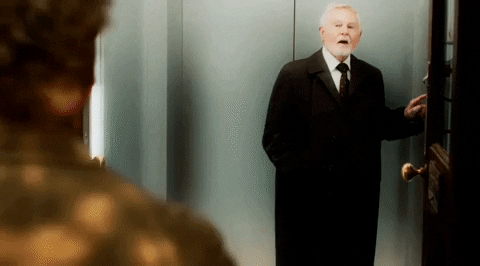
Edited for clarification.
#good omens#good omens 2 spoilers#aziraphale#crowley#ineffable husbands#crowley x arizaphale#good omens 2#neil gaiman#good omens spoilers#go2#go 2#go 2 spoilers#go2 spoilers#david tennant#michael sheen#Metatron#derek jacobi
386 notes
·
View notes
Text
Reverse 1999 Theory: Is Vertin Actually a Pure-Blood in a similar situation to Semmelweis?
During "Echo in the Mountains", Semmelweis says that powerful arcanist bloodlines often suffer from auditory hallucinations (wish I screen shot it!). However, Semmelweis is not good at arcanum so she gets all the downsides of being an arcanist. They claim she can't cast arcane skills despite being a pure-blood.
Doesn't this describe Vertin as well though? Vertin canonically sucks at arcanum but she also suffers from "auditory hallucinations"; Mr. Man and Grandma are some of the voices in her head. She has interesting genetics (storm immunity) like Semmelweis and Erik which would explain her Storm Immunity.
From a meta pov, when Schneider asks if Vertin is a pure-blood, Vertins says she doesn't know. While it was way back in the beginning of the game the effort to bring attention to Vertin's bloodline has a lot of implications.
We can't say for sure yet, but it's something to keep in mind. It also makes you wonder if there is a "trade-off". Erik and Semmelweis are unwell due to their arcanist blood. Does Vertin also have a price to pay for being a pure-blood? Although, Druvis and the others don't (that we know of) so its just more speculation.
Then again, Vertin's life is hardly free from suffering due to her Storm Immunity too. That could be her curse which also leans into her Soul Number being 0.
I haven't finished Echoes yet, so I'm still turning this over in my head. This post may change based on any new information I discover.
119 notes
·
View notes
Text
Watching Cats (2019) DvD Commentary
Thoughts as I watch:
Tom is literally basing this entire movie on the one time he saw Cats in 1981 when he was 8 years old
He called the movie a coming of age film about Victoria meeting characters that effect her and that Tugger represents the sin of lust (yes I am laughing)
He said abandoned three times in a row to describe Grizabella
Tom made up the thing about Grizabella used to be with Macavity happened because he wanted to cut out the idea that she was a prostitute
Has Bustopher eat trash because he thought that's what cats would be more interested in
The pause in Bustopher Jones when he says to gather the cats is a meta joke about the cats actually being people
The food was CGI
"Sees the implication of his unchecked appetites" in reference to Victoria and Bustopher Jones
Hooper brought his niece and nephew to set to play on the Mungojerrie and Rumpleteazer set
He keeps insisting that there is a learning and growing arc for Victoria, but I have no idea what he's talking about
He has barely talked about the characters as actual characters and mostly just talks about how great it is to work with famous celebrity number five or how they're symbolical. I think he's making things up at this point
He added the love story because he thought Misto trying to figure out how to be a magician was a good parallel with Victoria's story of finding herself
Originally the first barge scene was longer with a lot of improv from James and Rebel as Growltiger went on
"Robbie Fairchild is brilliant" that is the only thing Tom said that makes sense
This man really said "women can be the god of cats in 2019"
Judie and Ian were the ones to decide that Gus and Old D had a thing...well at least they followed the pattern of cats actors making weird decisions for their characters
I've come to the conclusion that Tom chose his cast based on which famous actors he's always wanted to work with
Tom has no idea how to describe choreography...just like how he has no idea how to film it
Giving Victoria a solo to sing was ALW's idea
He thinks the call and response of Beautiful Ghosts and Memory is brilliant and doesn't understand how he fucked that up
They almost cut "Moments of Hapiness"
He keeps talking about how great this film is for women, but where is Demeter sir!
He didn't know that it's Jellylorum that sings Gus' song and because Ian couldn't tell what the relationship between the two was he cut out her singing it for him
He talks about the advantage of mixing the CGI with the practical clothing, and I'm like, you know what would be even better? No CGI!
I don't know who's playing Bomba, but she was the first person to be cast in Cats
He said that he thinks Macavity works better as a solo and it didn't need to be a duet...I have never felt more like murder in my whole life
Taylor Swifts dad gave him the idea for the catnip
He likes the idea of Macavity being evil yet still plays by the rules...why?
He's talking about the changes from the musical to Mr Mistoffelees, and boy is he not bringing up that Tugger is the one that sings the number
Talks about community like there was any in this movie
This man has no idea who Jemima/Sillabub is, does he?
He finally mentioned Mette Towley as Cassandra at least. Recognize that she's the best character in this film goddamit!
Apparently Munkustrap was supposed to be learning about leading this whole film...wat
Apparently he watched the 98 film several times while writing the script...and yet this movie is straight
I'm not watching the commentary for the end credits. Fuck I hate this man
#cats musical#cats 2019#tom hooper#i will keep my gag of not knowing who that is going even on my tumblr#cats the musical#cats movie
99 notes
·
View notes
Text
Crowley, Angels and Free Will: More Good Omens Meta
I’ve been thinking a lot about Crowley in the Land of Uz recently. Particularly this scene:
A: Come on! You're a little bit on our side. C: Not even the littlest. A: Well, you're not on Hell's side. C: I go along with Hell as far as I can. A: So whose side are you on? C: My side.

Until this point, although Crowley has never seemed particularly ideologically aligned with the other demons of Hell, we could assume that Crowley’s fondness for life on Earth was a gradual process. He and Aziraphale have come to appreciate the lifestyle (cars and restaurants and music and wine and houseplants and coffee and various aspects of human invention) and the life they had amongst the people, and each came to vastly prefer it to a life in their respective Head Offices. But here, in Uz, we find out that Crowley realised this a very, very long time ago. He’s already discovered the joys of some human delights, particularly the wine. And just look at how knowing his face is here when Aziraphale first tastes food:
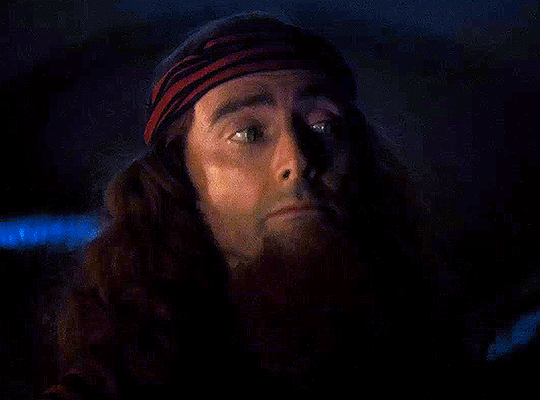
That's the face of someone who's been doing this for a while...
This story takes place in 2500 BC. Crowley’s been on Earth for 1500 years or so, only bumping into Aziraphale very occasionally. It’s not known how long Crowley’s only been going along with Hell, but the suggestion is that he’s always been this way. Playing the part of the demon, all while making his own choices. This incident with Job clearly wasn’t the first time he impeded Hell’s plans. He’s been playing his own game since leaving Eden, probably.
The implication here is that he was never really on board with Hell from the start. He was cast out of Heaven for asking too many questions, but never really took to the idea of ‘the other side’, or sides in general. He’s always been on his own side, coming up with his own ideas. The Metatron, who evidently knew Crowley when he was an angel, says as much in the final episode:
Metatron: Ah, well, always did want to go his own way. Always asking damn fool questions, too.
Ever since he was an angel, Crowley was going his own way. He never particularly bought was Lucifer was selling, he just wanted the freedom to decide things for himself. As Crowley says, he never meant to fall. Heaven just couldn’t accommodate an angel who didn’t follow the rules. Hell isn’t the right place for him either, though - and he knows it. Over the years 'my side' has become 'our side', but he's never really aligned himself with Heaven or Hell:

So what’s going on with Crowley and why has he never fit in with either side? For my money, it’s because Crowley has free will. Something angels and demons aren’t supposed to have. Aziraphale says as much in their discussion in Edinburgh in 1827:
A: Look, I am good. You, I'm afraid, are evil. But people get a choice.
But Crowley isn’t evil, and has seemingly never been that way. He’s been an angel with too many questions, and a demon who wouldn’t kill goats or fire guns. He’s always exercised a right to choose how he behaves, what actions he takes. He tries to stop Aziraphale calling his actions 'nice', but he does indeed often choose to do good, even though he's technically a demon. Crowley does things because that’s what he wants to do.
Aziraphale is developing this way too. Angels aren’t supposed to do what they want – they’re supposed to do what God wants. But with Job, Aziraphale does what he thinks is just, even though it's not what he was supposed to do, for the first time. That’s the poignancy of their final conversation in Uz:
A: But what am I? C: You're just an angel who goes along with Heaven as far as he can.
Crowley was an angel like this once too. Aziraphale hasn’t yet broken away from Heaven, though. He’s not quite ready to go his own way, be on their own side, make his own choices. To choose Crowley. He will choose this eventually, but it’s been a more gradual process for him.
Crowley, though. He’s been like this since he was an angel. Which means – was Crowley created with free will? Was he made this way?
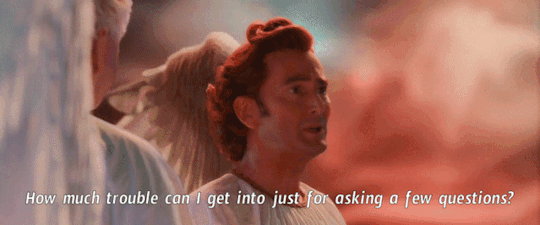
God plays an ineffable game of her own devising, after all...
#crowley#good omens#good omens 2#good omens spoilers#good omens theories#good omens theory#good omens meta#archangel crowley#sort of archangel crowley - this might explain why he's so different...#good omens feelings#aziraphale#free will#bildad the shuhite#go2
293 notes
·
View notes
Text
Thoughts upon finishing The Ballad of Songbirds and Snakes
Spoilers unmarked ahead as it's been out for a while and the title of the post warns for them.
As I've mentioned in my other few posts about it so far, I came into TBOSAS as a movie-only watcher despite having been a book-first person back when the original Hunger Games films came out.
I've got to say that when I heard the idea of a prequel about President Snow which included a love story, my tumblr-raised self wasn't particularly interested. I remember seeing the book display at Walmart when it first came out and not really having time or interest at the time.
However, the movie trailer caught my attention, and I'm really glad that it did.
I am happy that TBOSAS, while having a single POV character in Snow, switched from first person narration to third person. I remember reading meta years ago that I wholeheartedly agree with. While one can make the argument that the "blindspots" one gets in the original trilogy themselves make a point, having a slightly more zoomed out, third person point of view just feels better for the scope of the story. As an English teacher, I can't help but feel like it's a little more mature, too.
But without the movie, I still don't know if I would have ever picked up this book in audio or visual format.
Funnily enough, looking back on the first four Hunger Games movies, I actually don't like them as much as I like the books for the most part. The visuals are good in parts, but I do not like the casting philosophy that was used. I sort of hope that we are around long enough to see remakes as a prestige miniseries or something like that.
Back to thoughts on TBOSAS: I remember seeing a few kind of poorly produced (sorry lol) thinkpieces on websites like ScreenRant that were insisting that you weren't getting the full picture from the movie, that the movie made Snow too sympathetic, that you have to understand he's a monster because he views Lucy Gray in an objectifying manner or because he gets Sejanus killed.
I think that those takes have a point. However, I think that they also miss the nuance of the narrative, and I am not even suggesting that the prose is particularly deep or esoteric. Just that people love to be reactionary.
What I saw in Snow's character throughout the book was someone who was warring with various philosophical and personal dilemmas without having anyone he ever really trusted to talk through it.
There are moments with Lucy Gray and with Sejanus when Coryo almost opens up completely. When he has real conversations with them. But, like Katniss, he is a traumatized person who has a lot of baggage which makes him strategize and behave defensively with every decision he makes.
If anything, Coryo is LESS closed off than Katniss is at first throughout most of the story.
I couldn't source it, but I distinctly remember reading someone suggest that they believed that Coriolanus became irredeemable when he got Sejanus killed. However, reading through his internal conflict about the decision to snitch on him was one of the times when I found Coriolanus the most human and relatable. He was torn in every direction. He is someone who is deeply propagandized into a fascist regime whose family has a personal narrative of power and meaning within that regime. He also believes that the Capitol is necessary and better than the alternative. He wants Sejanus to survive and to change his mind. He wants him to stop putting himself in danger. He wants him to stop implicating Coriolanus by association. And yet, Coriolanus does feel responsible and tied to him, however much he hates it.
Coriolanus defends himself from emotional attachment and the cost of loving anyone, romantically or platonically, as a defense mechanism.
It isn't until he works himself into a frenzy and narrates what Lucy Gray must be thinking out at the lake in the end that he finds himself so utterly alone in his own head that he has no choice in his mind except to give into his colder side that he associates with his father, the Capitol, and ruthlessness.
Interestingly, a running theme throughout the book - without ever being explicitly stated in these exact words - is that Coriolanus is irreligious and doesn't believe in gods, rituals, or an afterlife. Every time someone brings up the stars or fate or performs some kind of ritual associated with passing on an even in the scene where Lucy Gray sings about the hereafter and therebefore, he can't help but internally scoff at the idea. He holds himself as more enlightened than those who believe in such superstitions.
But then, when he is all alone and trying to navigate his way back to District 12 with his father's compass, he starts to believe that there is some kind of spiritual guidance and blessing from his father, whom he never even felt close to except as an idea.
I think that Coriolanus's internal journey is an exploration of opposites and the divide that Lucy Gray describes and how evil is rarely even a boundary over which one cannot cross back into good from. It's just that, at a certain point, Coriolanus cannot bear the weight of his own guilt and misgivings if he ever turns back to a "better" path.
On the subject of Lucy Gray: I've got to say that I thought the book was effective in showing Lucy Gray as someone with dimension and depth that Coriolanus saw glimpses of but never really fully understood. Had he stayed with her and not needed "civilization" so much, I believe he would have learned to see her as more and more of a full person. However, the way she is written in the book, it is really hard for me to get a mental image of her at all.
Again, I think that this is perhaps intentional as a part of this format of the story. However, I find that I appreciate Rachel Ziegler's portrayal of Lucy Gray so much because without it, I'm not sure I would find that much to emotionally invest in. This is actually quite the opposite, as I like my mental image of Katniss far more than JLaw's portrayal lol.
Anyway, those are my wrap-up thoughts.
#tbosas#snowbaird#coriolanus snow#tbosas meta#thg meta#the hunger games#the ballad of songbirds and snakes#prix op#lucy gray baird#sejanus plinth#meta
33 notes
·
View notes
Text
Love Sea: Theory on the Presence/Absence of Family Ties
After I saw the below relationship chart, what really jumped out to me is the lack of family shown on Mut's side, compared to Tongrak's. Here is my theory on how I think family ties may play into both character's backstories and be a point of connection between them.
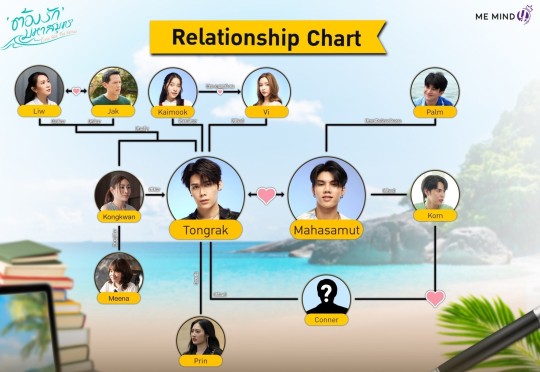
Considering that we spend a good portion of the story on the island - where we'll be introduced to Mahasamut's life, his community and where he comes from - the fact that he has no family identified is very surprising, and could be an indication that Mut is actually alone.
This would align with what we know about him so far. Mut offers to help anywhere he can to earn an extra buck, and takes his work as a diving guide very seriously. Possibly because he has to be self-reliant. He's also popular on the island, having made connections with those around him, more so if he doesn't have a support network at home. When you don't have your own family, you find your own. There have been implications by Fort that Mut feels lonely.
Based on MAME's writing tropes, I wouldn't be surprised if this is rooted in tragedy. Maybe his parents passed away. If my theory has any legs, Mut would understandably be upset when Tongrak is due to leave the island to return to Bangkok, and is facing the prospect he'll be left behind, alone again once more.

This would also make for a great parallel to Tongrak - who has an abundance of family in the picture. I have a feeling Tongrak has also faced difficulties on a familial level, and my hunch says there may be father/son tension explored here. There's a very quick shot of his father in the trailer, and it appears to be Mut he's looking at. His expression is somewhat antagonistic or challenging. Tongrak's worries may revolve around parental disapproval or expectation.

So in summary, Mut's insecurities could be rooted in an absence of family in his life and having to be so independent all the time. And conversely Tongrak's insecurities are exacerbated by the presence of family - perhaps casting interference or undue judgement on his life.
All predictions at this stage, but I'm eager to find out! I'd love to see Tongrak and Mahasamut identify each other as their new found family.
You can check out bird-inacage’s BL meta directory for my other prediction posts around Love Sea.
#love sea#love sea the series#love sea meta#peat wasuthorn#fort thitipong#fortpeat#tongrak x mahasamut#rakmut#no novel spoilers please!#i just want to see protective tongrak
55 notes
·
View notes
Text
take me up / cast me away
so this is going to be a veritable word vomit but this is actually so exciting to me; we obviously affiliate aziraphale with the flaming sword and both its biblical and GO narrative implications, but the catch that @frog-person made on this particular shot has got every synapse firing.
(and therefore this is a meta for @frog-person and them only, mwah✨💕)
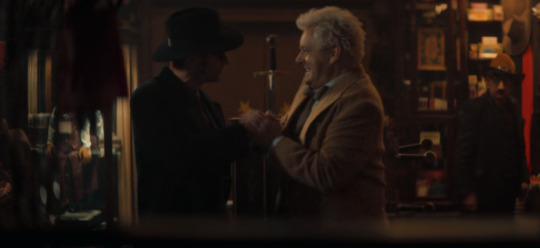
not only is the sword going through their hands, but it's one sword of many in a particularly fiendish magic trick (or at least an earlier version of one made popular by the morettis in the 70s), and the box itself with all of its swords is relatively prominent in most of the scene, as background props go (more on this later).
now, i don't know enough about magic tricks or illusions to understand the significance that this aspect may have, if any - possibly the element of trust, sure, but also the sheer ability to hoodwink the audience into accepting that there is no way that whatever is inside could possibly survive such a trick. however, i simply want to just talk about the sword in general.
let's start with connotations and symbolism behind the image of the sword. first of all, it's a phallic symbol and is largely used in the context of knighthood, chivalry, and sovereignty. it symbolises justice, and truth, and righteous and merciful power. to hold the meter of life and death in your hands, and to be trusted to use it in conscience and clemency.
in alchemy, the sword was shown as a symbol of purification, between life and death. similar connotations in other histories, literature, and customs read the sword as being the key to balance between truth and enlightenment. later into history, especially in the middle ages, swords of discernible quality were understandably resource-intensive to make and therefore came to symbolise wealth, but moreso in the context of strength and glory, and further then a symbol of protection and shelter. traditionally, oaths and pledges would be made to the sword (literally, sworn-sword), and in turn swords were - and continue to be - used to elevate you to a higher station (eg. use of a knighting sword).
the imagery of the sword in the box is evocative of the sword excalibur, probably one of the most famous swords in literature and legend. cliff notes: excalibur was the believed magical sword of king arthur, and was written in some accounts (specifically in this case in the poem Merlin by robert de boron) to have lodged in an anvil, sat atop a stone, and that whoever could pull it from the anvil would be proof of rightful lineage of uther pendragon - and therefore, by divine right, king of the britons. obviously, arthur was said to have pulled the sword from the stone.
excalibur's symbolism can be interpreted somewhat as being as i said above; tennyson wrote that the words inscribed on excalibur as being (paraphrased): "take me up" / "cast me away"; to indicate that the sword is a weapon that should be used sparingly, only when necessary, and never without mercy or fair judgement. it is a power that can destroy, and should be safeguarded from turning that power to insidiousness. a call-to-arms when taken up, and a grace and peace when cast away.
(im a whore for arthurian legend ok, im from southwest uk) (and have a tattoo on my arm of those words, im a basic cornish legend bitch)
now, i realise that excalibur is not literally a part of the GO story (that we know of, notwithstanding the flashback in s1), and the sword we know in GO has a rather different narrative importance (or does it?). so, we know that in genesis the flaming sword was given to the cherubim in eden to guard adam and eve, and this is pretty much transposed to GO right up until aziraphale does the Cool Thing and gives it away, meant as a means of protection.
however, given that it ends up in the hands of humanity's personification of war, it bears a rather vivid mirror to the intention of excalibur; that in casting it away, aziraphale inadvertently introduces the concept of destruction to humanity.
but im now going to move away from the symbolism of the sword itself (i promise im trying to organise this meta into some semblance of order), and instead look at it in terms of when aziraphale actually holds it. we start with him giving it to adam and eve:

and then when he takes it up at the airfield:
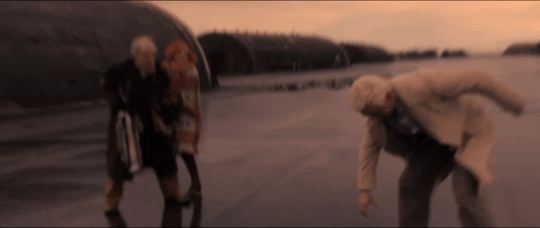
and in the time bubble with adam and crowley:

now this is really obvious, i realise, but it does have some bearing for me on the image we see in the 40s minisode. sword up: ready to fight. sword down: ready to rest. it's a reasonably common occurrence to see in heraldry (by extension in logos/emblems and even on gravestones) two crossed swords pointing up or pointing down. usually, for the former, that the prospective wielder is ready to battle, is prepared and willing, and is or always has been braced for the onslaught.
the latter however indicates that either the fighting is done, or that no threat is meant - and that this can be in death, in surrender or defeat, or out of conscientious choice. that the wielder may have chosen mercy, and to act with peace and without conflict. one step further - sheathed sword goes on to symbolise that a fight is not anticipated; not necessarily in the sense that the wielder is unprepared, but instead that they are not turning to violence as an option.
this is where i think the presence of the sword in the shots from the minisode, with all of the connotations of it from eden (and its similar, in my eyes, likeness to excalibur) come into play. as i said before, the sword/s are notable visually in the whole magic shop scene. its in primary focus along with the desk as they enter, its the first display aziraphale goes towards, and it oscillates in the background from to aziraphale's right, to between him and crowley, and latterly back again:
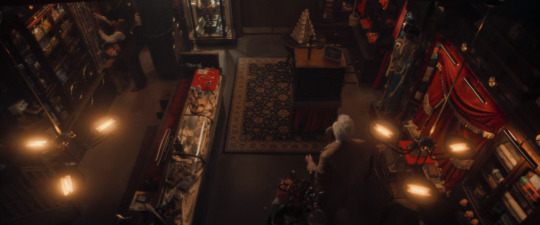



summarised thoughts on this, because it will otherwise be a truly garbled mess:
the sheer presence of it reminds the audience that a fight may be imminent, even if the scene/story is currently at peace
that whilst the narrative is not currently in full combat, it pays heed to not only the events of ep4 being somewhat of a fight, but the events that precipitate in ep5 and ep6, and leading into s3
that where it is currently cast in the figurative stone, it may be called upon to take up arms, and confer suggestions of sovereignty, divine power, and strength
that victory (however that may conclude) may only be possible with the right person in power; aziraphale as the new supreme archangel and prince of heaven
it also confers the necessity of protection, of justice, and of mercy, being elevated to a position where you have the power to make that judgement
all things which aziraphale intended by giving away his own sword, and is what he indicates in ep6 that he intends to deliver to heaven once he ascends
that this fight, whenever it may come, may literally divide him and crowley in the story that lies ahead
...you don't need me to explain this bit contextually, right?
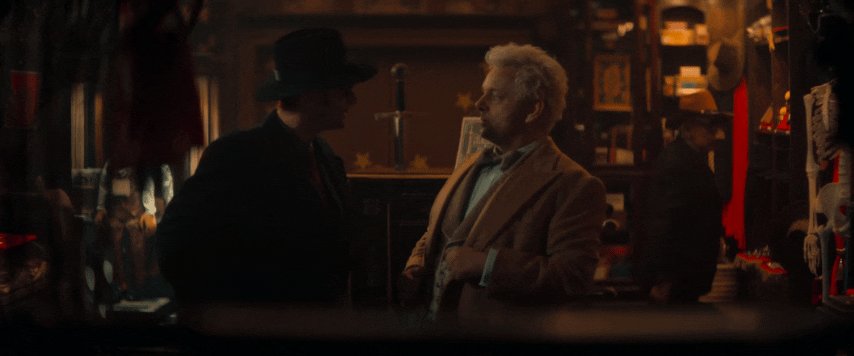
the last thing that stumped me, however, is that there ought to have been something in ep6 that almost bookended all of this imagery (at least temporarily, until we have a s3), or at least indicated whether or not aziraphale chooses to take up the sword again like he does at the end of s1. that shows him prepared for a fight, to defend the weak, and uphold judgement in mercy... and then it hit me:

of course there bloody is.
#this is relatively unimportant and unneeded but this my shit#like do i believe that ive cracked a code and this was what neil intended to convey? no not necessarily#but do igaf and instead just like going full year 9 english teacher on this shit? absolutely#not proof read yet - pretend you do not Perceive The Errors#good omens#s2 meta#s1 meta#flashback meta#aziraphale meta#s3 narrative spec
189 notes
·
View notes
Note
One thing that bothered from the first THG movie when I was a kid is that Thresh and Rue were described as having the same skin tone. But in the movie, Rue was significantly lighter, and Thresh had darker skin.
Now, that used to bother me for not being "Book accurate" when I was like 11 or such. But now I think of like
"Huh, having the light skinned girl being the symbolic and meta-textual representation of goodness and innocence in the Arena and the tall dark skinned boy being the one who kills someone mercilessly with a rock was a choice with Implications I'm not really a fan of..."
(I might be overthinking it cause I'm white passing and not that smart, but let me know your thoughts)
Hey don't talk about yourself like that!!! It's absolutely an example of colorism. (something that amandla has been taking advantage of throughout her career no less). like for example in the hate you give she's substantially lighter than her book counterpart
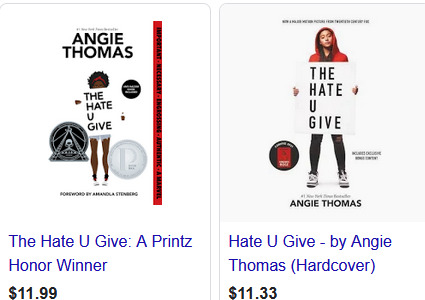
you can see it in the differences in these 2 book covers. the one on the left is the original cover and as you can see she's much darker than amandla on the right.
so going back to thg here's thresh's actor
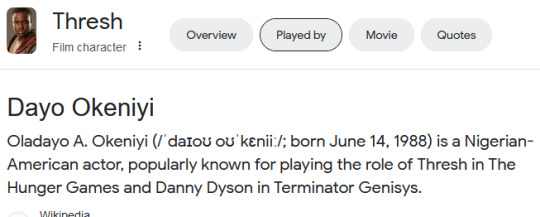
let's zoom in on him

now here's amandla

so yeah this was a deliberate choice on the part of the casting directors. and it absolutely is an example of lightwashing/colorism.
mod ali
119 notes
·
View notes
Text
I am mass tagging this because I think our criticism never reaches a larger part of the fandom. People can't comprehend why certain kinds of fan art styles are criticized. I acknowledge that in our enthusiasm to do so, we sometimes hurt fanartists ( in fact a few months ago a fan artist had deactivated and really that shouldn't have happened). So in this post I am trying to address the issue in the best way I know of. This post is about the way asoiaf artists tend to draw the Stark family. And because I am most interested in Arya I have talked about her in this meta. I have put the meta under cut so that if people aren't really interested in this, they can skip it.
I don't understand the genetics of a mixed race family of starks where only Jon/arya is dark skinned ( because Ned is imagined to be dark skinned) but Sansa/bran/Robb/rickon is pale or paler. Often, 80% of fanarts of every single fanartist follows this trend and when someone comments on it, and questions the fan artist on how and why this same style has become universal interpretation via implementing "death of the author" ( as one very recent defense puts it), the fan artist replies in a dismissive and defensive manner. The deflection of this very apparent problem ( and the implications of following the trend), is done by "uno reversing" the accusation of racism. This is absurd because when it is pointed out that something seems off with drawing the "plainer"Starks in a particular way, the intention isn't to single out and point fingers at one particular fan artist. One particular artist isn't doing this thing. The finger is being pointed at the trend of the style that dominates asoiaf fan art. Does this not strike anyone as odd that in 80% of these text interpreted fanart produced by most of the fan artists, the brown haired starks are darker than the red heads? The red heads who are said to be the prettier ones?
I am an Arya fan so i am going to talk about Arya here. Throughout the fandom at large whenever Arya Stark is talked of, it isn't done to analyze her motifs or themes or political importance. No speculation is made of a future that may position her in an office of considerable political power. No, fandom at large talks of Arya as if she were a brute, who kills people needlessly ( see raceforironthrone's meta on how the harrenhal guard didn't need to be killed), and is in need for constant supervision because she is volatile and therefore politically incompetent. There is also this running criticism of Arya Stans using too pretty face casts for her or yassifying her in fanarts, because to the larger fandom Arya is the ugly one. Now here's the thing, the slogan of let little girls be ugly isn't preached for Lyanna Stark. No one is saying let this dead teen be ugly even when Grrm in explicit terms has said Arya looks like Lyanna. No for some reason even when numerous characters talk of Arya looking like and behaving like Lyanna, the fandom at large only acknowledges that she has a spirit and sense of justice similar to Lyanna's. But they would bend over backwards to negate anything that says Arya looks like Lyanna. Why is that?
Then anything relating to Arya being married or having an heterosexual relationship and children born out of the relationship is mocked. I remember a poll where someone very cheekily gave an option specifying that Arya having non bastard kids with Gendry. I don't know if I had read it wrong but the way it was worded- using the term non bastard children...to me it personally seemed like a jab at what arya Stans speculate about Arya possibly marrying and having a family of her own.
I don't think there is anything woke or anything traditionally disruptive in trying to dismiss any and all possibilities of a GNC woman marrying a man and having kids. Sure on the surface, lumping on Arya various sexual identities other than heterosexuality and theorizing that she wouldn't want to have the whole husband/kids routine is very diversifying but if one is to go beyond the surface, then what is to be said about the hesitance of even considering that a GNC woman might enter a heterosexual relationship? What aesthetics prevent people from considering a GNC woman having a regular shmegular life? A GNC woman's sexuality perhaps isn't affecting her gender noncorfomity. ( this isn't to say that a fan can't see or project onto arya their own reality/identities that make them resonate with her, I wasn't talking about that. I was talking about the fandom blatantly ignoring Arya checking Gendry out and how much throughout the text family plays a significant role in her storyline. Her one "no that's sansa" cannot dismiss the possibility of her wanting to have a family in her twenties, especially as someone in whose story family plays a core theme.) ( there is also another sensuous scene in the bathhouse with jaqen but uhh...yeah I am not really sure how to talk about it).
So all in all a girl considered ugly by the fandom is often treated as being sexless,and is considered a volatile hotheaded brute and this girl when drawn with her sister is drawn considerably darker. Does this not strike anyone as alarming? Also where there is a discourse on if Arya is ugly or pretty, there is no doubt that Sansa is the prettiest of all the Starks, even Catelyn. Why is it that in the interpretation or via death of the author', Sansa is never drawn darker than Arya? In a mixed family why is Sansa never shown with a darker skin than the rest of brown haired/ red haired starks, not once? Individual interpretation and yet it seems like these individual interpretations have been same all through these years. Now yeah, Lyanna is drawn with darker skin sure but then again her looking like Arya is dismissed and it seems like there is a tendency to connect her with Sansa. Any criticism in this exercise is once again mocked or dismissed.
#valyrianscrolls#jon snow#daenerys targaryen#arya stark#Cersei lannister#Bran stark#Tyrion lannister#lyanna stark#robb stark#Ned stark#catelyn Tully#maegaery tyrell#stannis baratheon#melisandre#samwell tarly#meera reed#jonerys#gendrya#asoiaf#jaime lannister#brienne of tarth#jaime x brienne#asoiaf fanart#asoiaf art#game of thrones#a song of ice and fire#got
110 notes
·
View notes
Text
I'm thinking about Future's contract with Aki again. And the fact that he saw Aki's "worst death" which took place BECAUSE of Aki seeing that vision and going to Angel Devil and then the beach... not to mention the many times he survived up till that point due to Future's contract.
Makes me wonder about the linearity of the future the Future Devil sees. Especially accounting for the contracts he's had with the other devil hunters before Aki.
If we assume that the future is fixed and Future is simply witnessing Aki living out his worst death after they've established his contract, not to mention the fact Future said he determines the terms of the contract based on what he sees in his contractor's future... then he likely agrees to contracts and asks for the according payment he sees based on whether or not he likes what he saw, almost like casting himself in a film he likes.
That Future himself is both the audience and a subtle auteur in Aki's eye... That Aki played his part as an audience surrogate as the "normal guy" while framing the narrative of part 1 to us through his selective lens until the moment of his death when the true nature of the narrative is revealed.
But the future "can't be changed" and I wonder about the futility of it experienced by the Future Devil too, he can provide the means to influence someone's fate with his power and contract, but they ultimately lead down a single outcome, what he sees is one future that he has yet to partake in but nonetheless involves him in the role he plays in determining where it goes.
And the fact that only two devil hunters besides Aki managed to get a contract with him... kinda implies that Future likely saw his involvement in their futures too w this line of thought and that this is a rare occurence for him. That the two other devil hunters would live a future without half their lifespan and the physical sense they sacrificed as payment because of him. That this future exists with him in it.
But if the future isn't fixed, and I kinda talked a bit abt this in my other Future Devil thread, then he may have looked into a plethora of possible futures and settled for the one leading to Aki's "worst death" the power he provides not one that branches his future but one that nips those branches. Aki's "worst death" as his "most interesting, compelling, dramatic death". The death that reverberates into part 2 through Denji. (Side note but Future resembling a tree adds a whole other layer of symbolism to Denji and Aki's arcs in the context of their family and the chainsaw, the pruning of the cycle as narrative inevitability)
This is super fun to think about on a meta level for canon divergence ideas, Future has a lot to dig into with this. But also just how these implications affect part 2 as far as the prophecy is concerned. Cuz I'm currently of the idea that the Church may be enacting a self-fulfilling prophecy in order to combat it.
That the Church represents CSM's fandom and its exploit of youth with passion and arms in exchange for their body and devotion, (what Aki himself was under PS and Makima) that Aki's fate forms the cornerstone of this fandom. That Denji is tangled between this violence and family bc of his ghost of family that he inherited from Aki's. The ouroboros of p2's narrative bled over from p1.
Cosmos's quote to Santa about everything running its course too, much to think about.
But even just the fact that Future and Cosmos are devils, born from human concepts which in turn bring these concepts to life and altering reality, then used by humans...
This is what I think about Death too, and the self-fulfilling prophecy angle of the apocalypse. The tree people could potentially be one of the four fates besides death that Pochita erased, tho that might clash with Pochita's erasure abilities thru his stomach being intact even in Aging's world despite Aging's world disabling devil powers.
11 notes
·
View notes